Bergen and Hardangerfjord, August 21
Oppheim
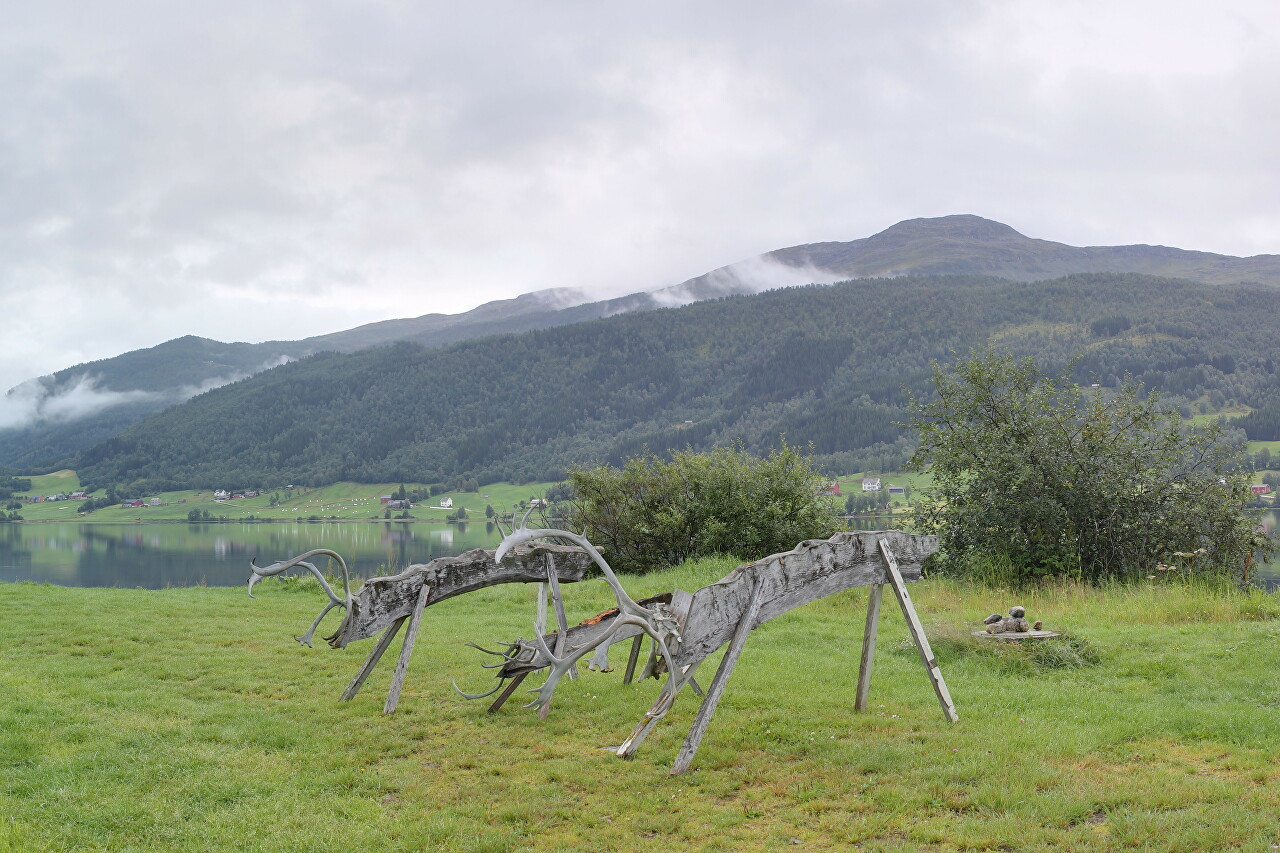
The Vossestølen Hotel, where we spent the night, is located in the tiny
village of Oppheim, so I took a few minutes to explore the surrounding
area before leaving...read more 
Twindefossen Waterfall
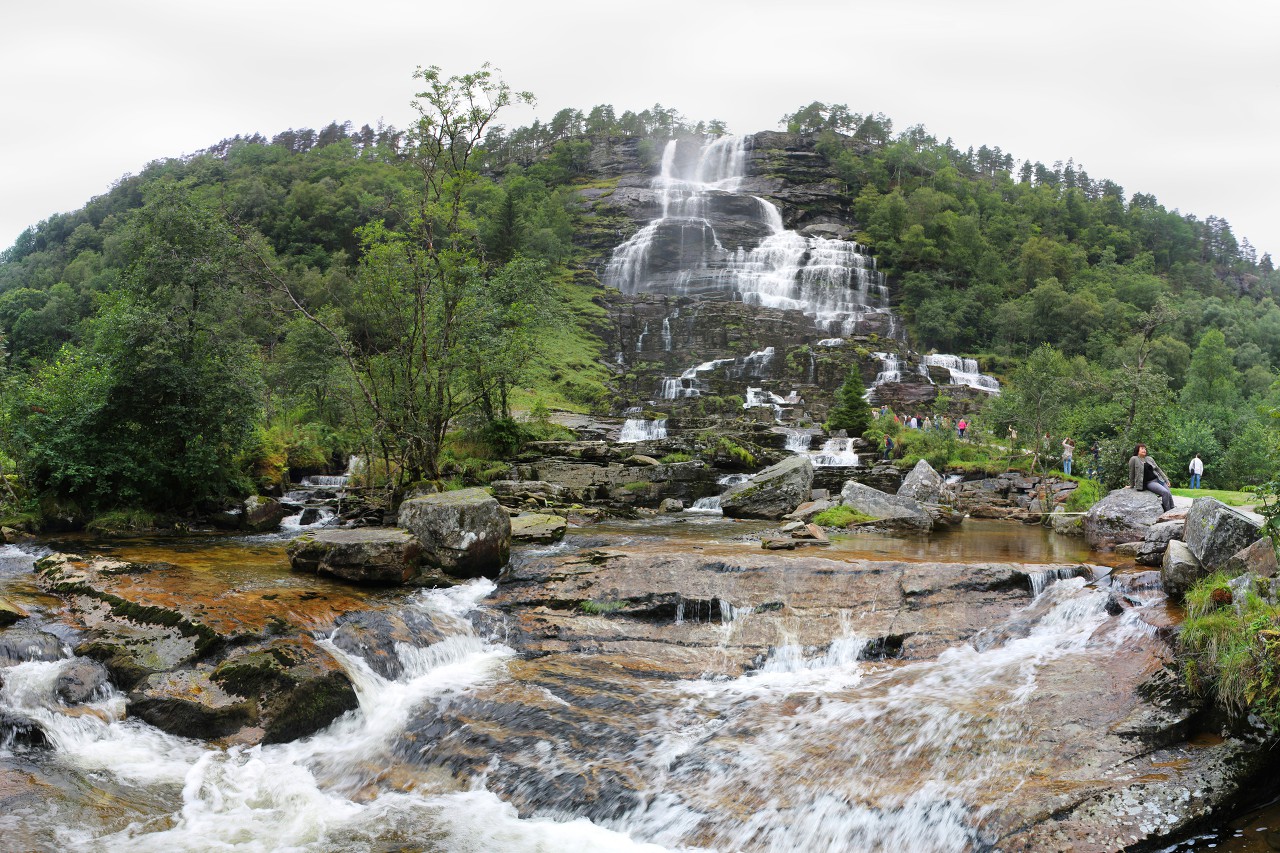
Early in the morning, we left the cozy hotel on the quiet and
picturesque lake Oppheimsvannet and headed along the E16 highway towards
Bergen. Just a few kilometers later we stop at another miracle of the
Norwegian landscape...read more 
History of Bergen
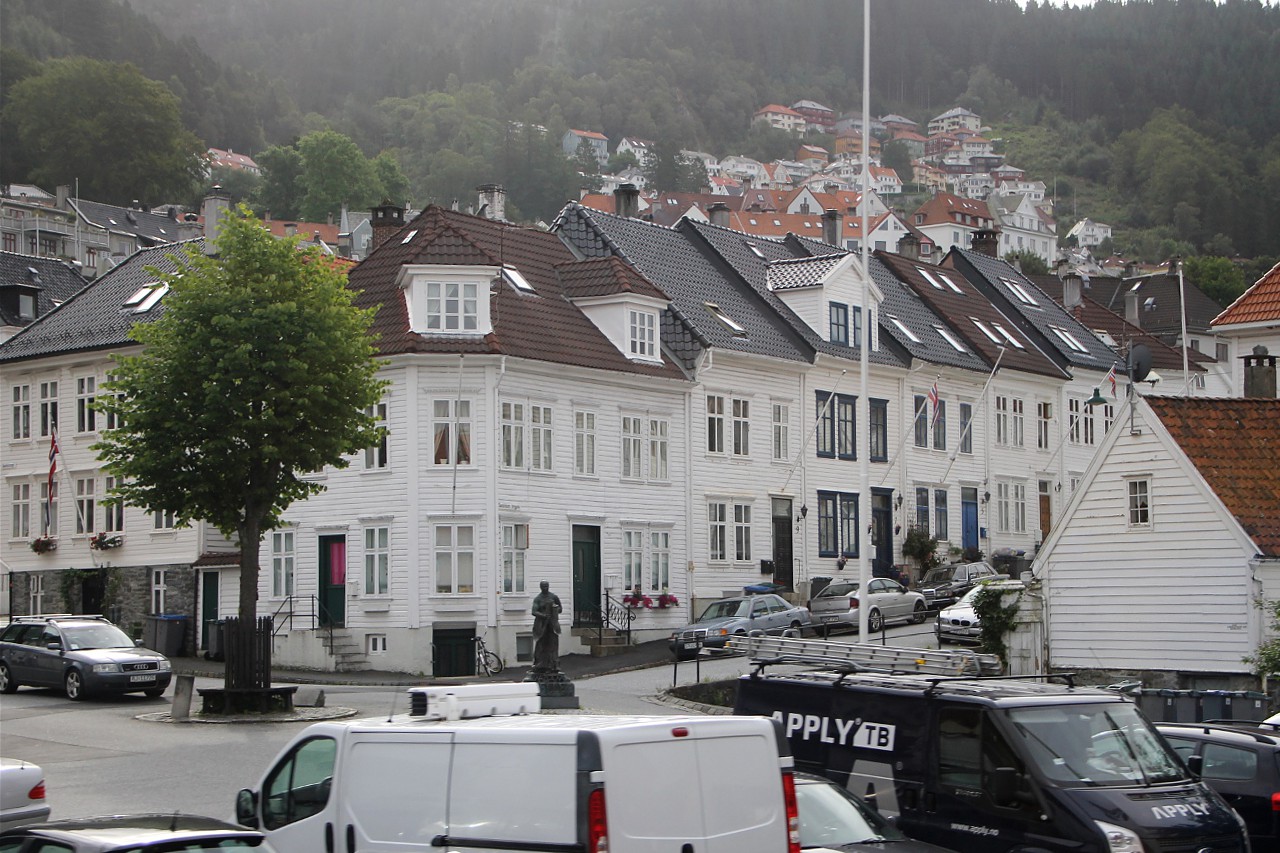
The next destination of the day program is Bergen, the second largest
city
in Norway with a population of just under 300 thousand people. As we
drive towards the city center, I'll tell you a little bit about its
history...read more 
Bryggen Hanseatic Embankment, Bergen
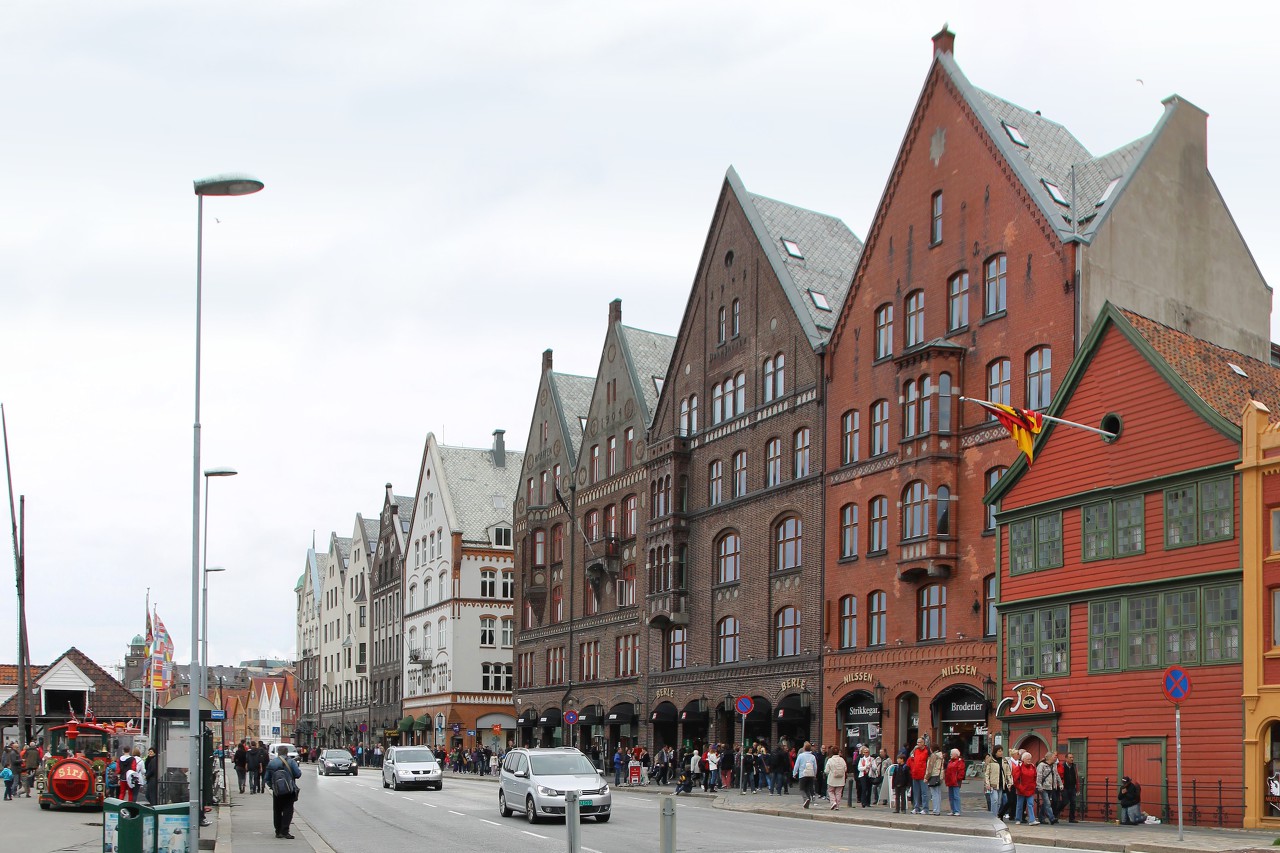
Tourist's acquaintance with Bergen usually begins with the Bryggen
embankment, where the main historical sites of the city are located...read more 
Schøtstuene, Hanseatic Assembly Rooms, Bergen
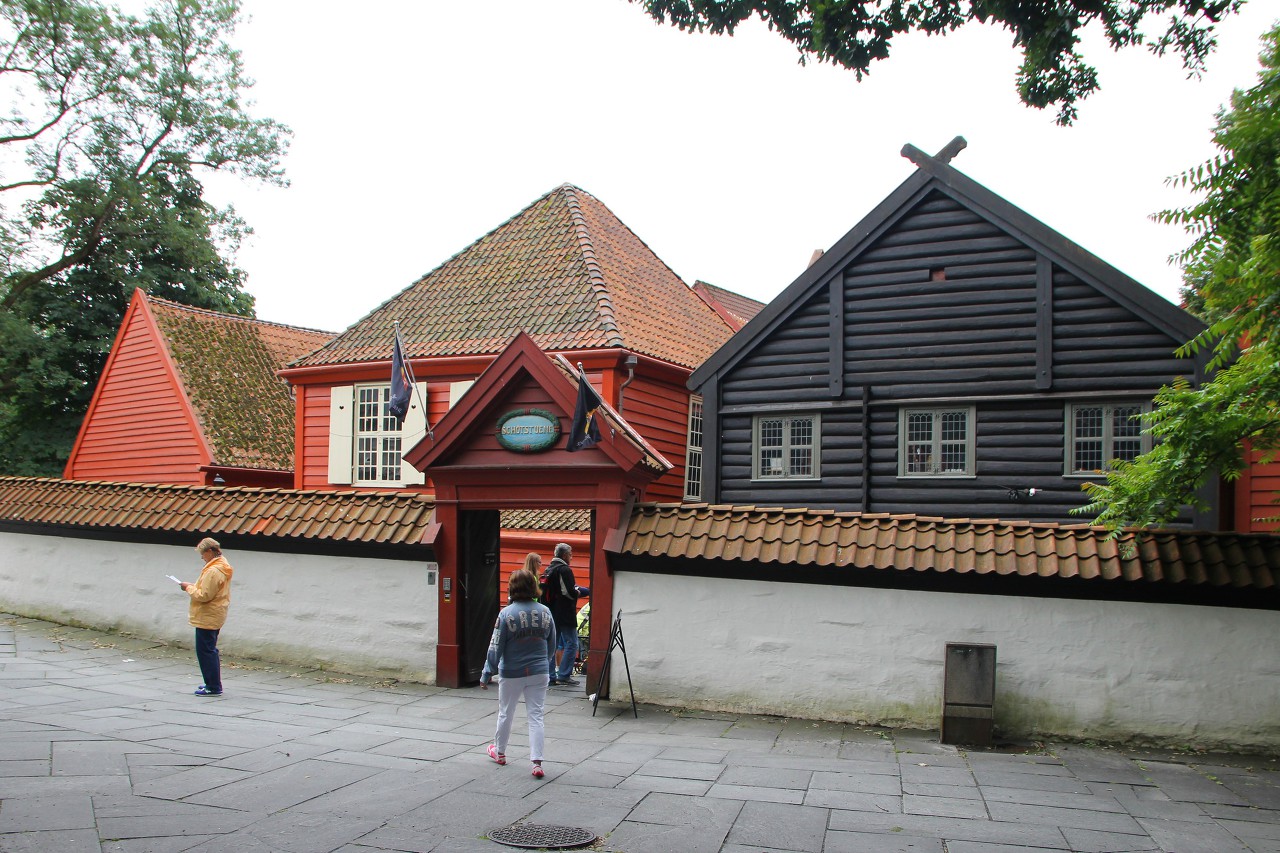
The Bryggen quarter, which had a very dense building entirely of wood,
constantly suffered from fires, the source of which was the kitchen and
heating stoves of the estates...read more 
Bryggens Museum, Bergen
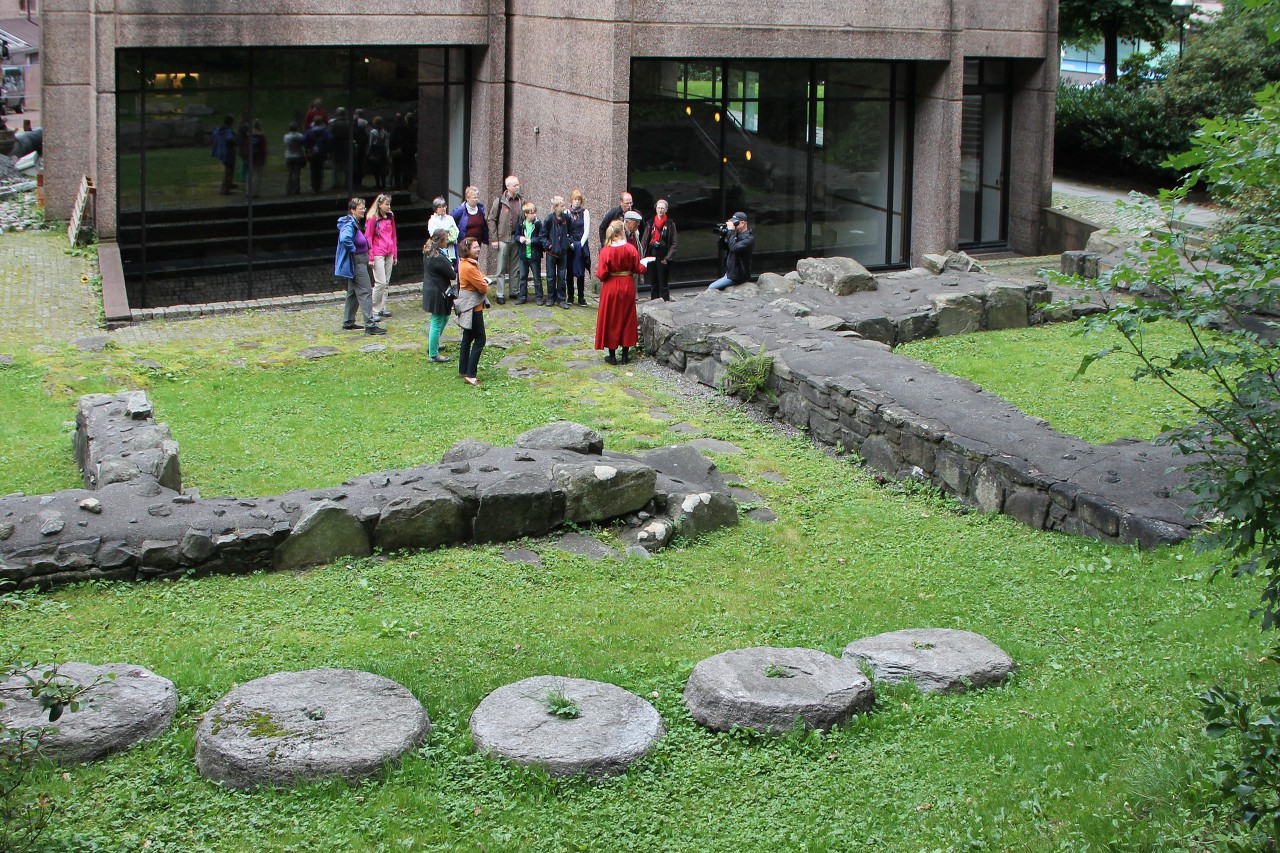
To the right of the Hanseatic Assembly is the area of archaeological
excavations. The history of the Bryggen quarter goes back more than 800
years, during which time a significant cultural layer was formed...read more 
Rozenkrantz Tower, Bergen
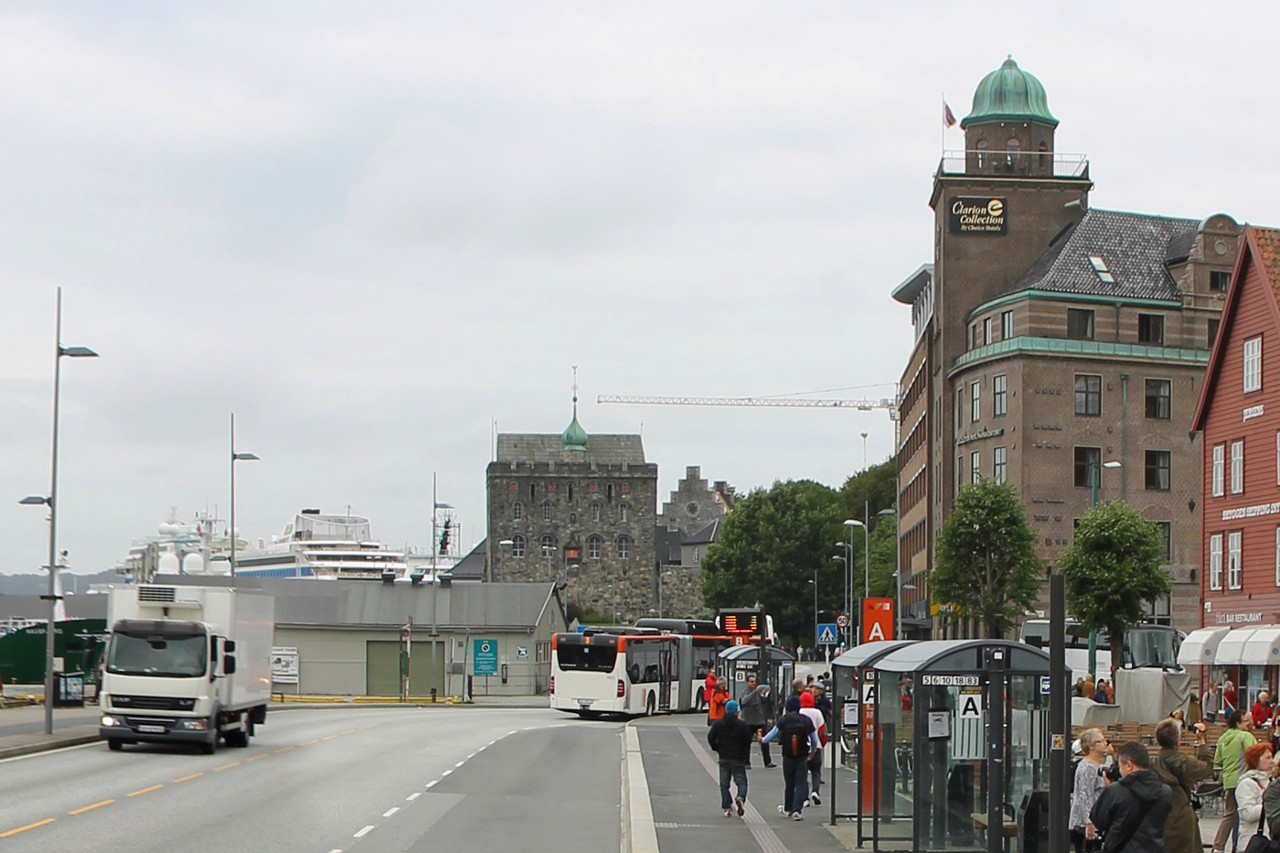
At the very end of the embankment, you can see the Rosenkrantz tower
(Rosenkrantztårnet), which is a symbol of Bergen and one of Its main
historical monuments. The oldest elements of the tower belong to the
castle of King Magnus Lagabøtes, built in 1270 and named Bergenhus
festning...read more 
Bryggen Hanseatic Quarter History, Bergen
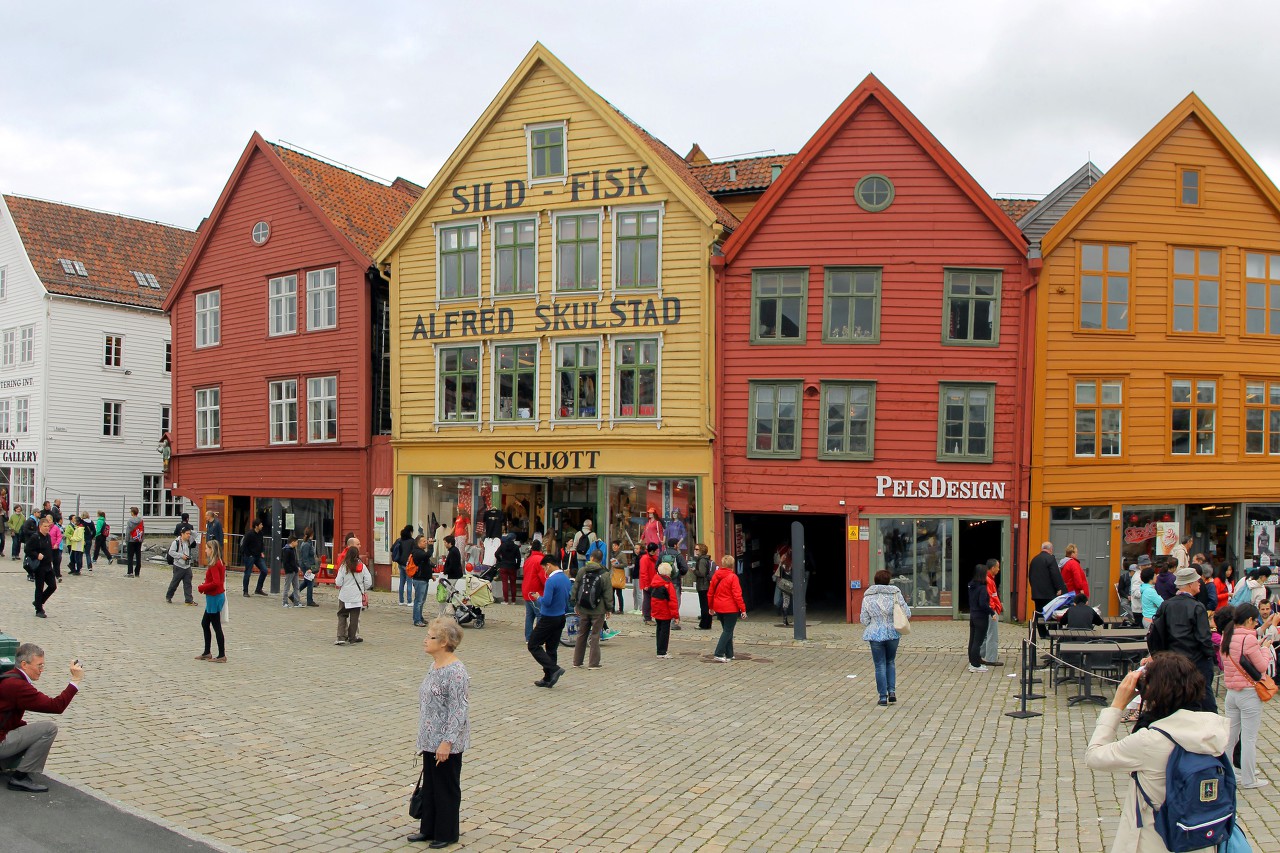
The Lubeck Union (Lubeck hansa) was formed in the 12th century by German
merchant guilds to protect trade from the tyranny of feudal lords and
piracy...read more 
Bredsgården Farmstead, Bergen
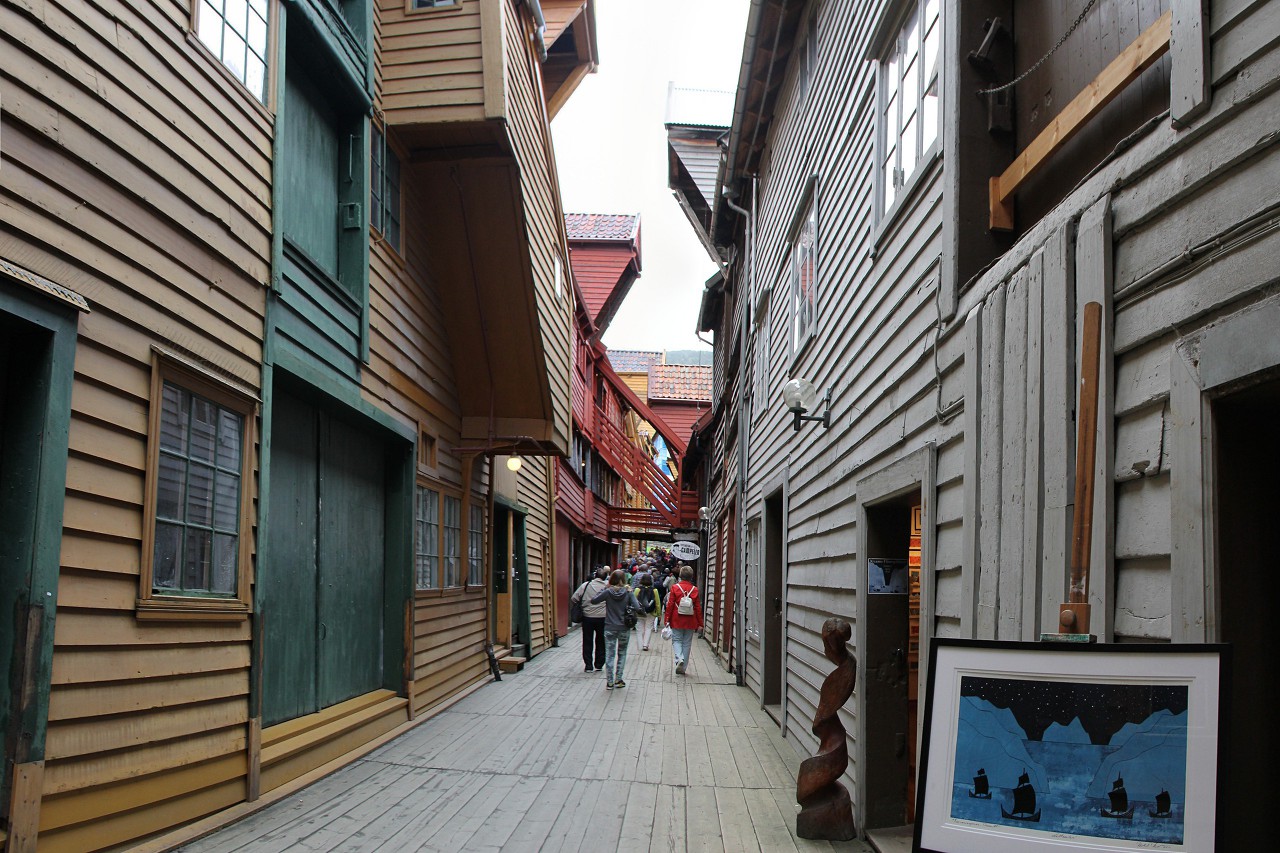
The largest surviving farmstead in the Hanseatic quarter of Bryggen is
Called Bredsgården (Bredsgården, literally "wide manor"), its facade is
22 meters wide and includes three "Sea" houses (Sjøstue), where the
owners lived and housed a shop and office...read more 
Bryggestredet Square, Bergen
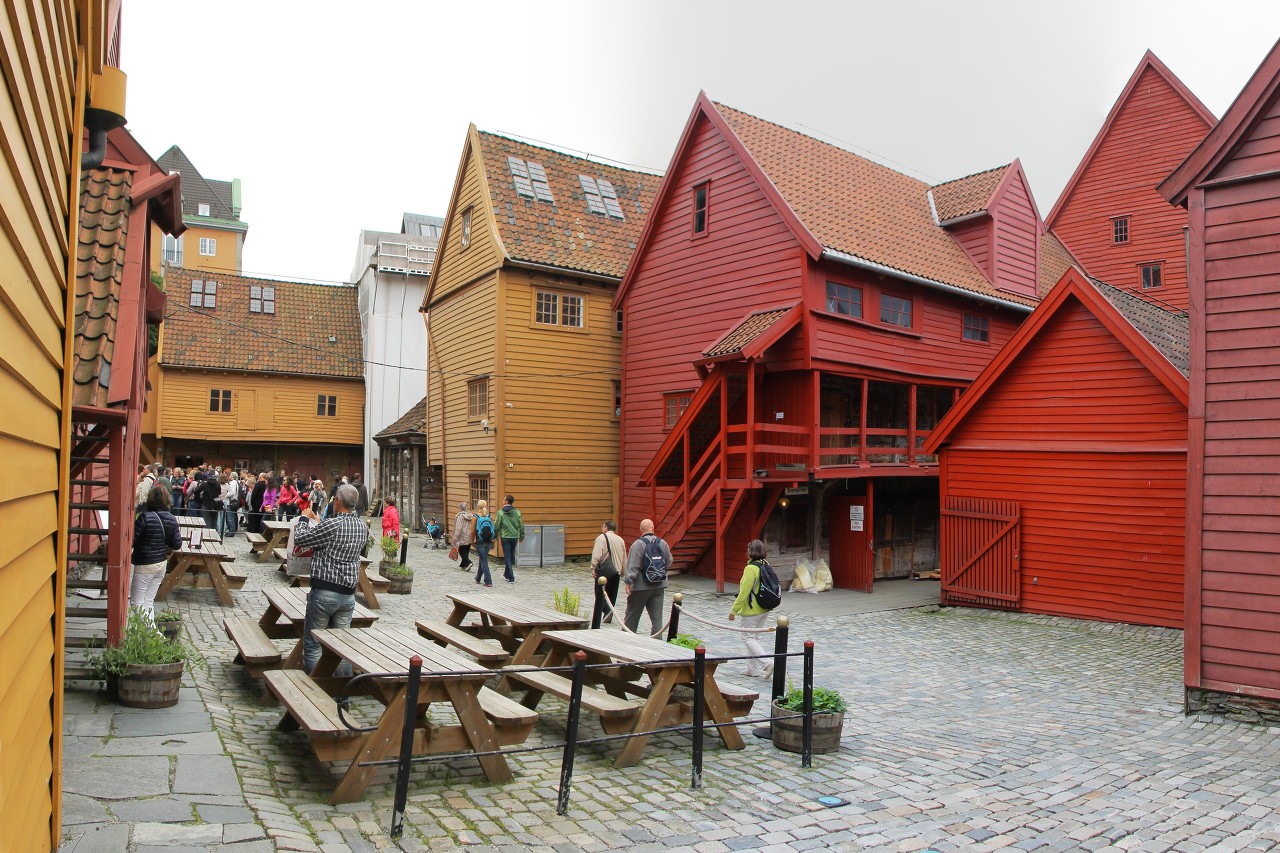
ter passing through it, we will find ourselves in an elongated square
surrounded on all sides by wooden buildings. This stone-paved open space
does not resemble the narrow streets covered with wooden floors, but
rather the courtyards of the estates of
Hanseatic merchants...read more 
Monument of Codfish, Bergen
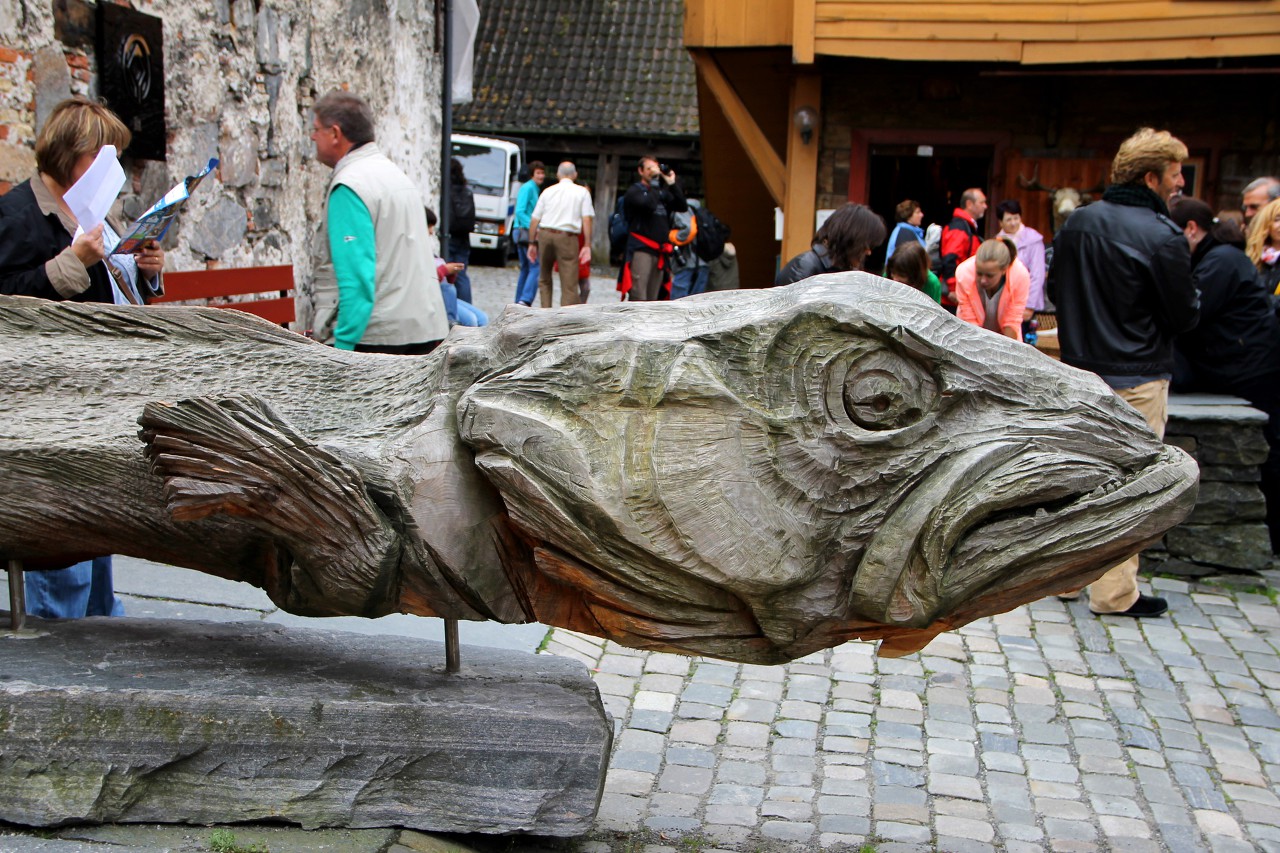
Fishing has long been the main occupation of the tribes that inhabited
the coast in the area of Bergen. The local waters have always been
famous for a large number of shoals of cod, which was the main prey of
fishermen...read more 
Bellgarden Farmstead, Bergen
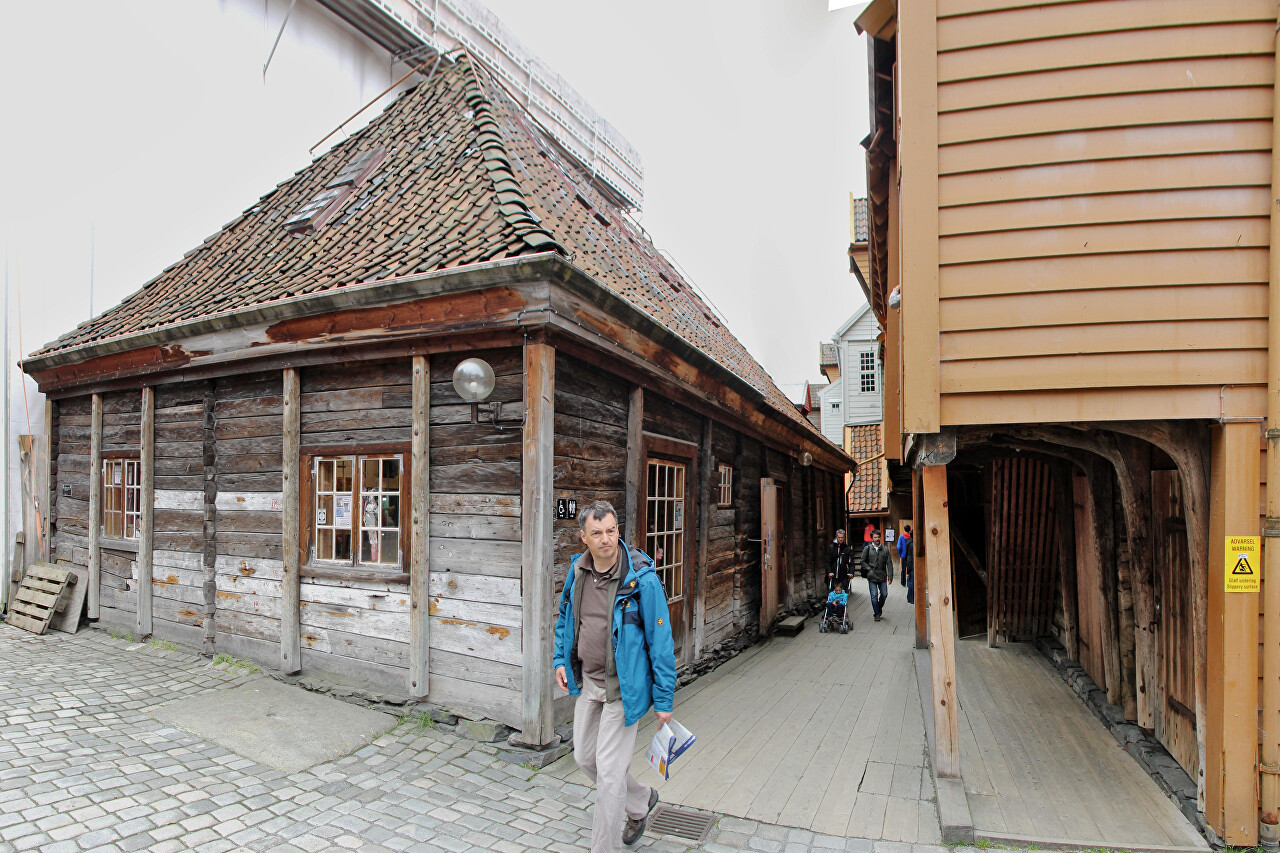
From the cod monument, another narrow passageway between wooden
buildings leads towards the Voit embankment. This farm was first
mentioned in documents as Áfiorðrinn in 1309. In 1399, the farm was
purchased by the Munkeliv kloster Monastery and renamed Jacobsfjorden...read more 
Hanseatic Museum, Bergen
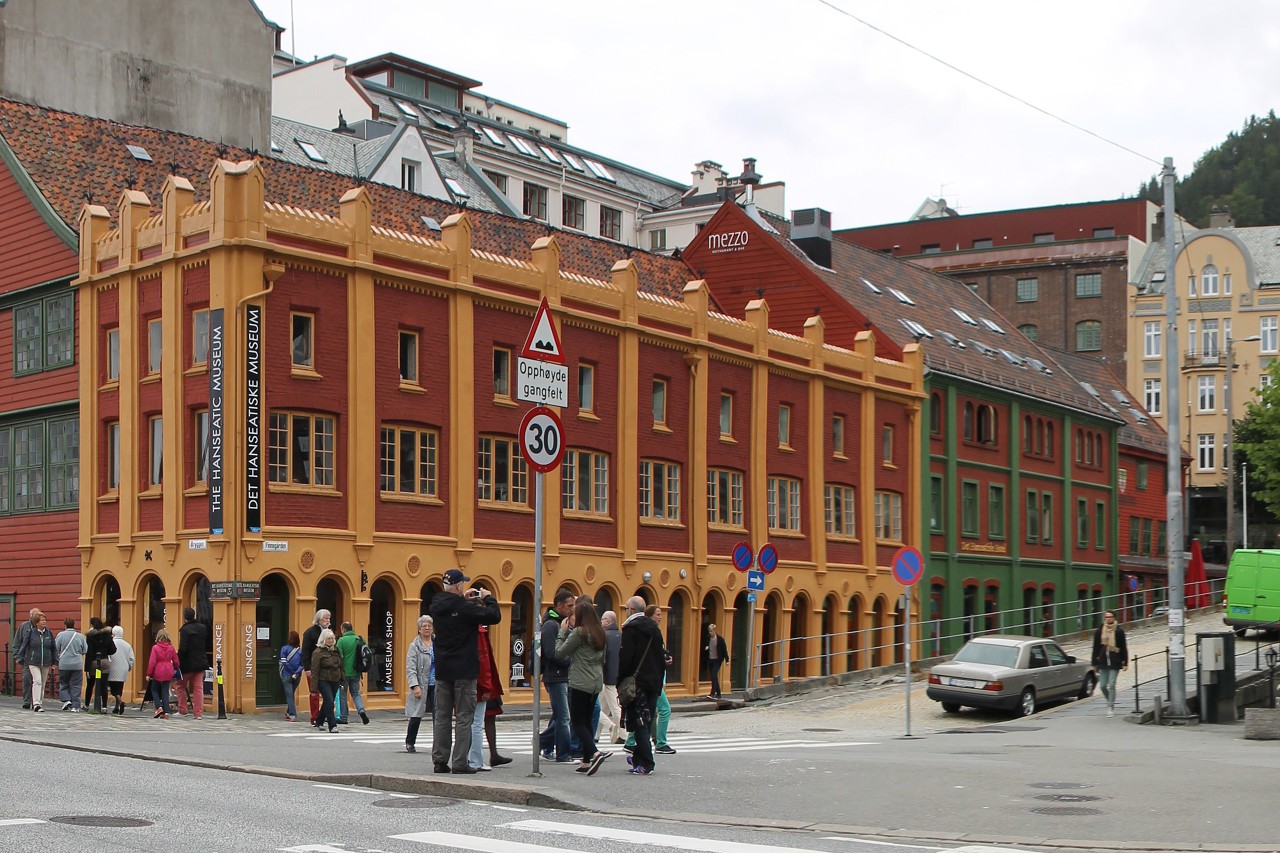
At the corner of the Bryggen embankment and Torget Square, there are two
buildings occupied by the Hanseatiske Museum. The older house,
Finnegaarden Manor, was built in 1702 after a fire destroyed much of the
city...read more 
Torget Square, Bergen
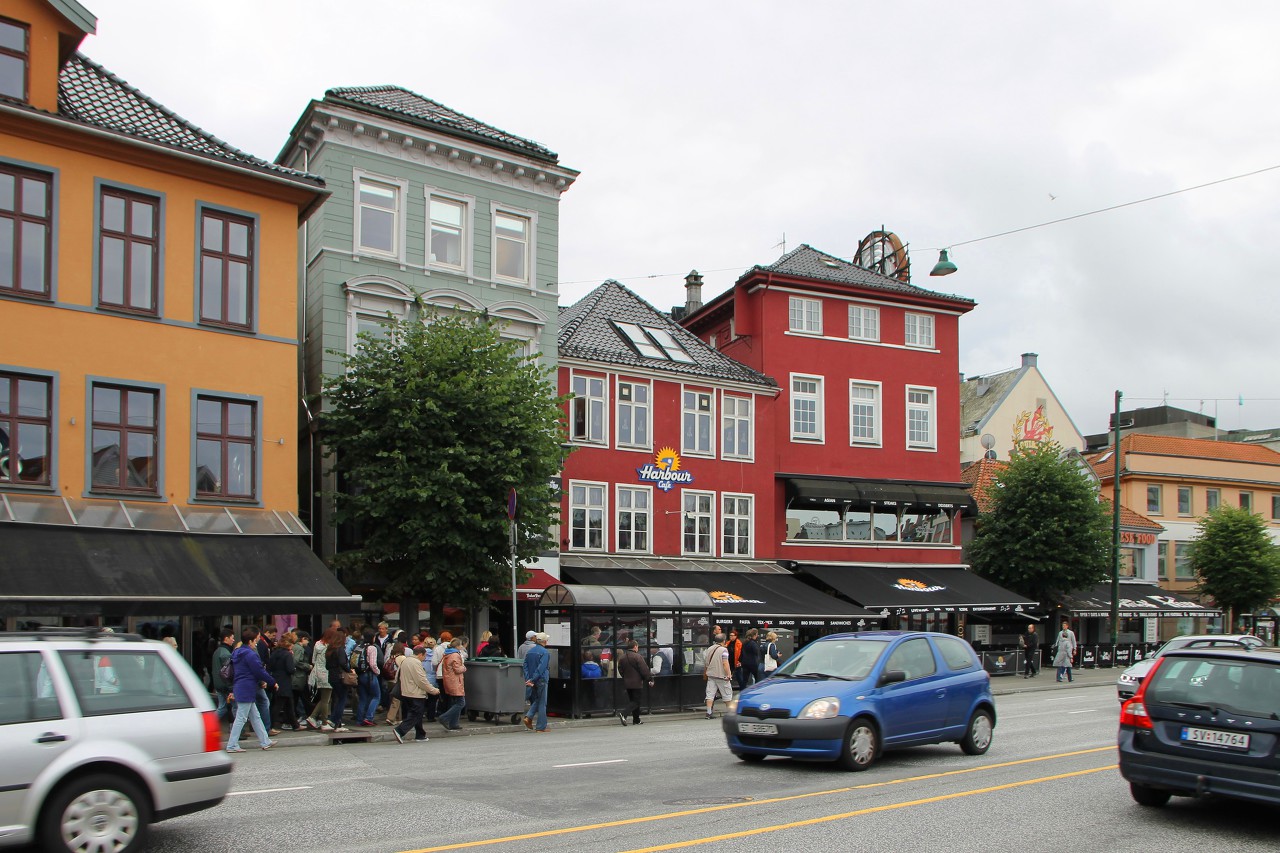
After exploring the Hanseatic quarter, take a walk around Torget square.
The Zachariasbryggen restaurant complex, rebuilt from warehouses on the
pier of the same name, is located in a large white building at the
beginning of the Bryggen embankment...read more 
Fisketorget Seafood Market, Bergen
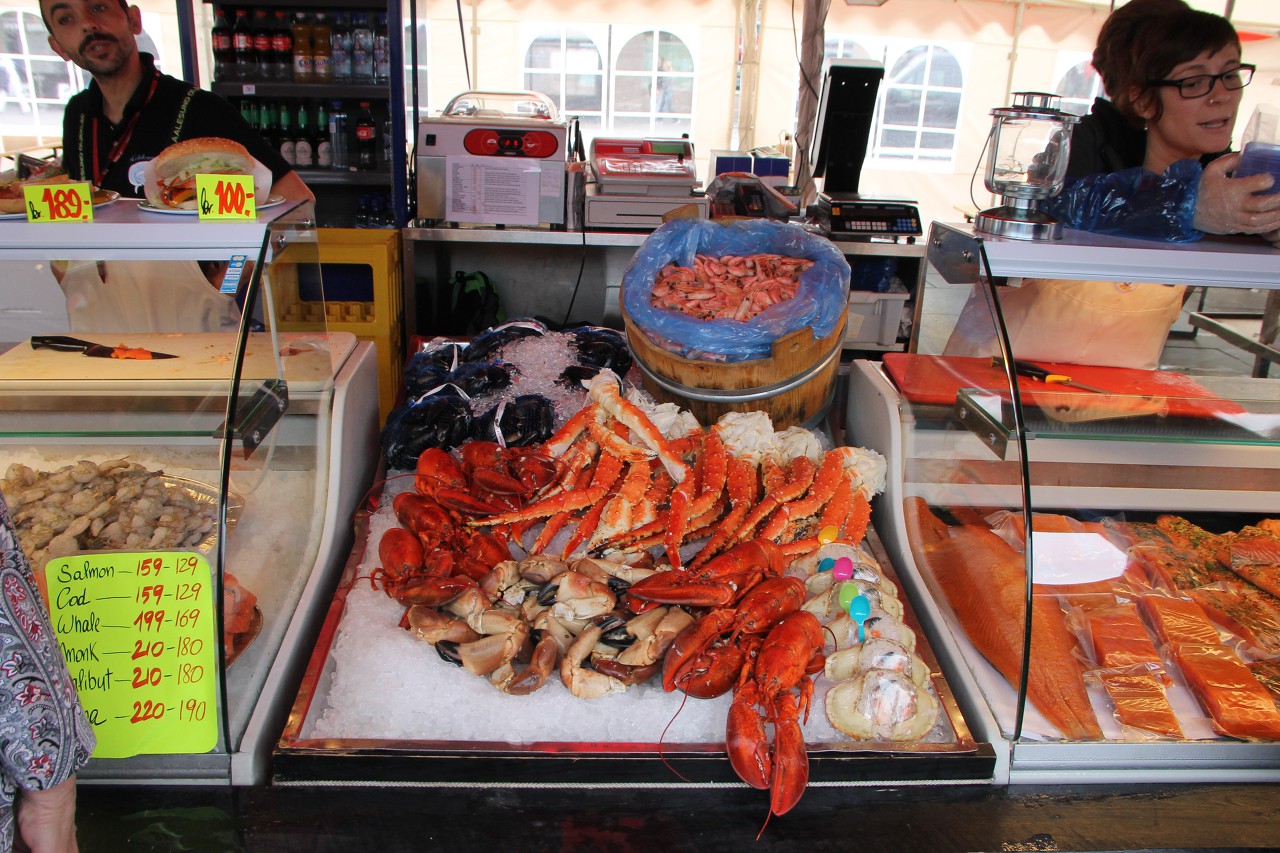
Along the eastern shore of Vågen bay located the rows of tents marine
market Fisketorget, originating in the 13th century. Initially,
fishermen brought their catch to the Bryggen embankment, but in 1556,
the city authorities, fearing the control of the Hanseatic merchants
over the local retail trade...read more 
Vågsallmenningen Square, Bergen
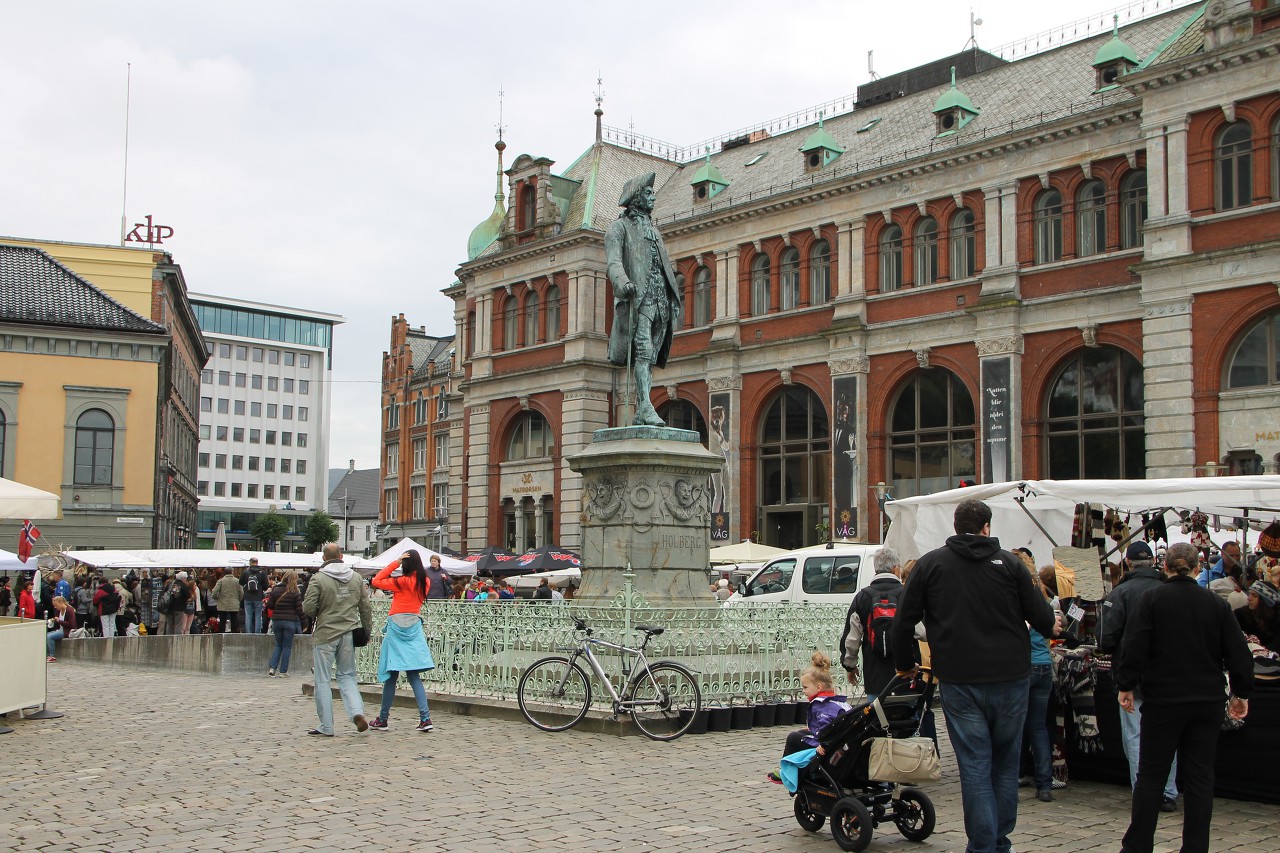
Opposite the market is Vågsallmenningen Square, which was created after a
fire in 1582 as a protective strip between the market and the town hall
and was called Rådstueallmenningen (literally "public space at the town
hall")...read more 
Vetrlidsallmenningen Street
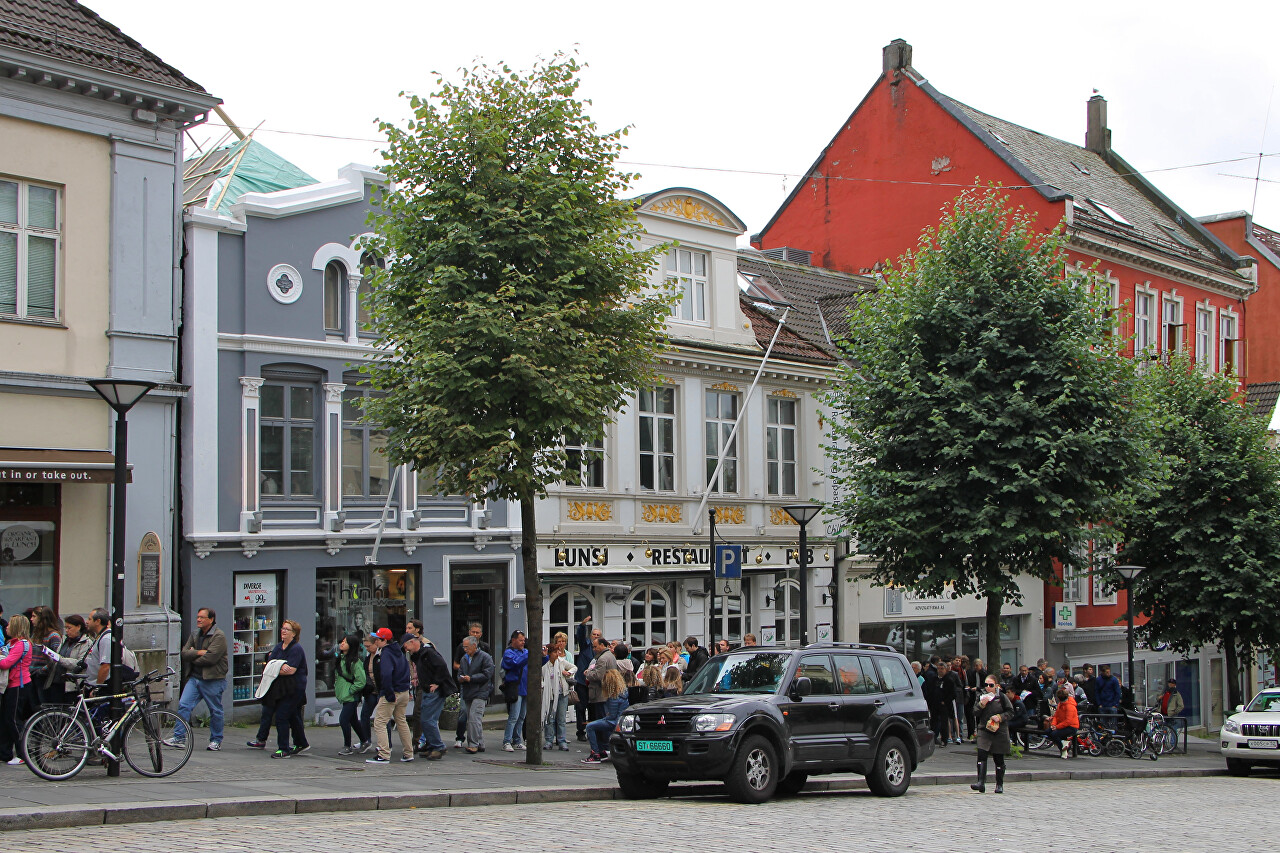
Vetrlidsallmenningen street is mentioned as early as 1197, on this site was the community from which Bergen grew...read more 
Kindergarten (Christi Krybbe skoler), Bergen
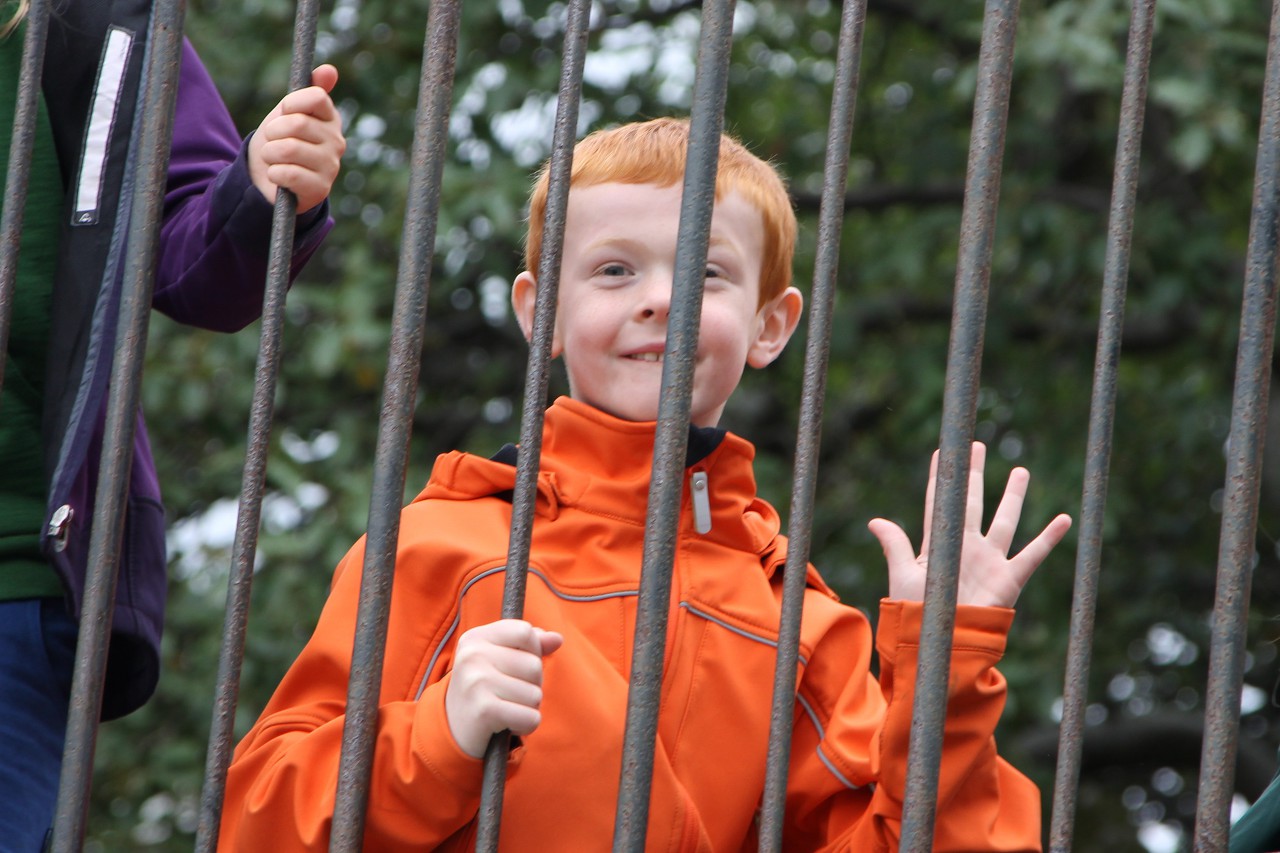
o the left of the lower station of the Fleibanen funicular is one of the
oldest folk schools in Scandinavia. The school was founded in 1737 and
was named "Korskirken School for the Poor", after the parish church
(Korskirken)...read more 
Fløibanen Funicular, Bergen
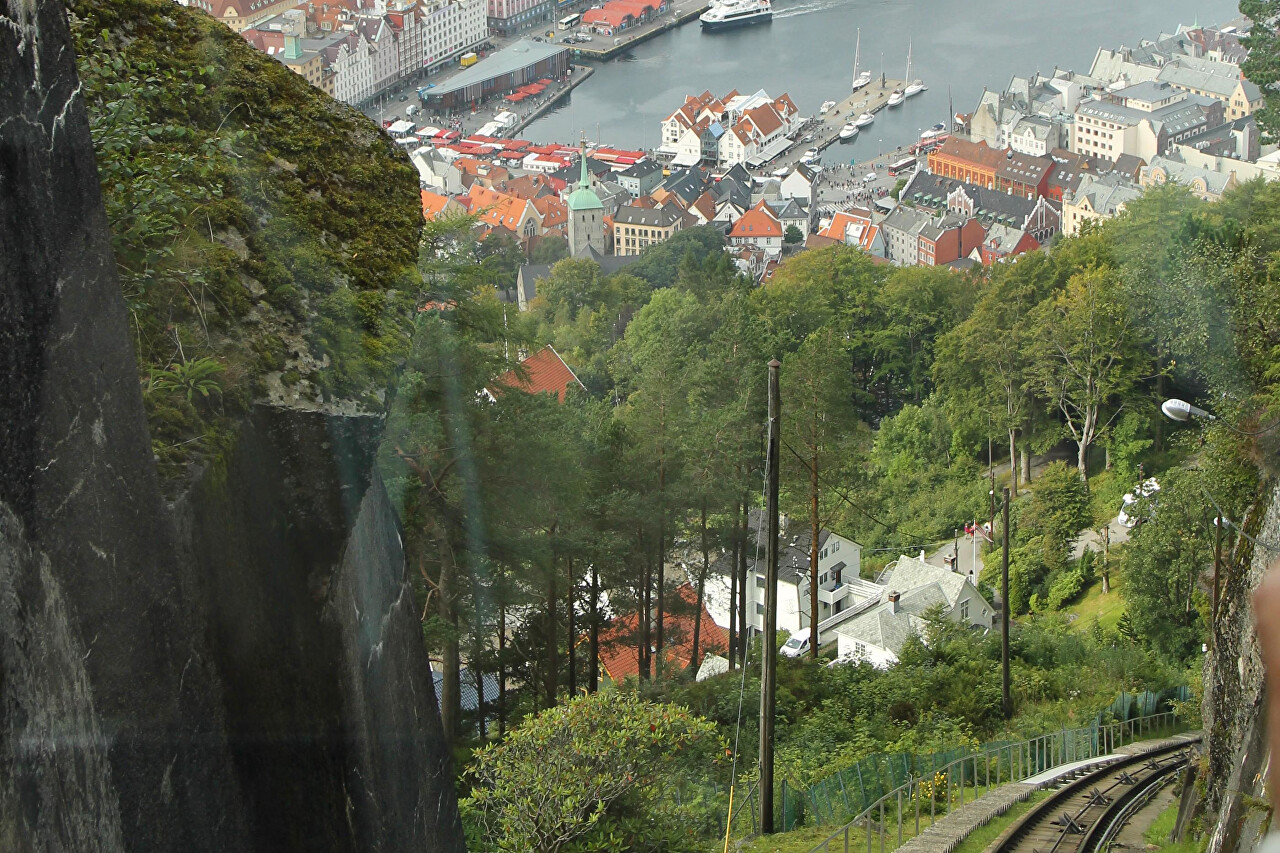
At the end of Vetrlidsallmenningen street is the lower station of the Fløibanen funicular, where we had to climb to the observation platform
of mount Fløyen...read more 
Fløyen Park, Bergen
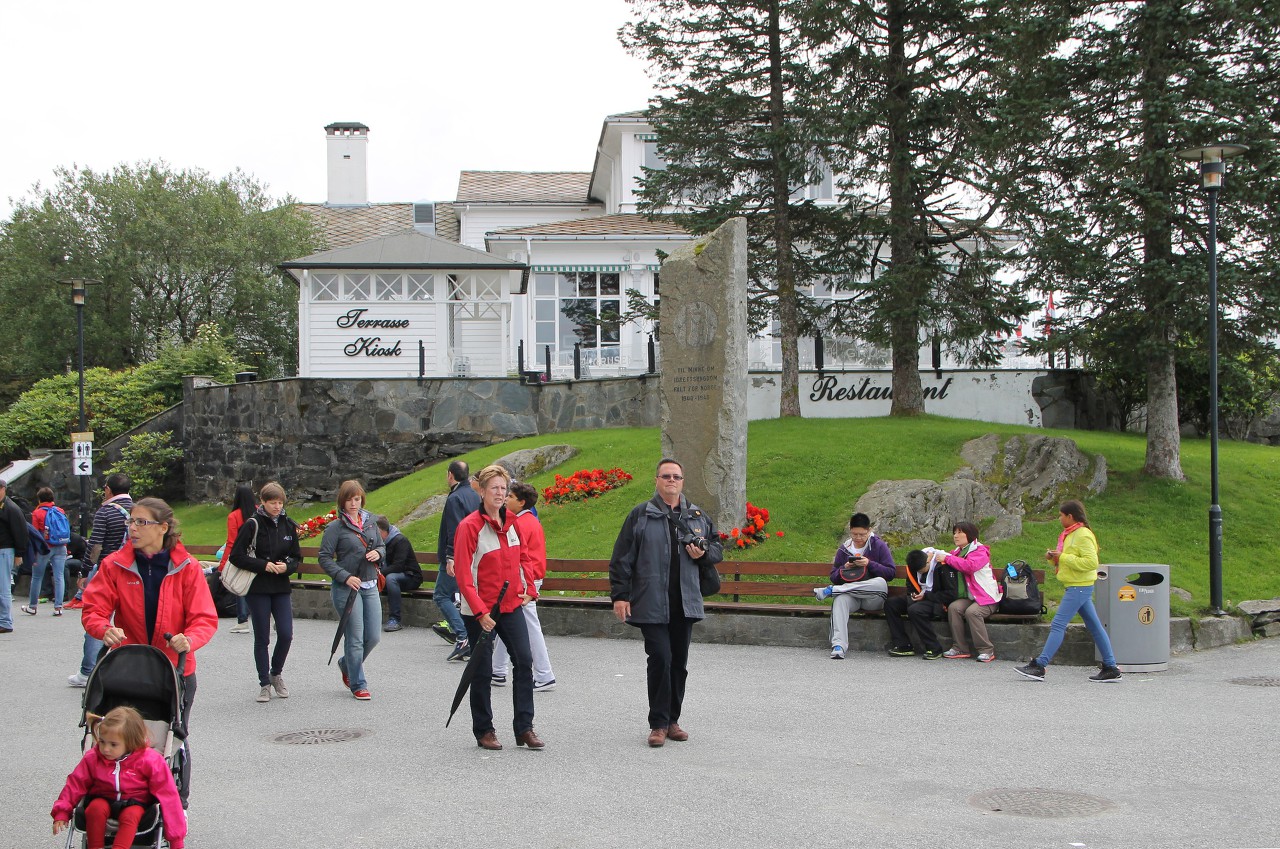
Fløyfjellet, or simply Fløyen, is one of the seven mountains surrounding
Bergen, rising 400 meters above sea level. The same name is given to
the nature park located on its slopes...read more 
Panoramas of Bergen From the Mount Fløien
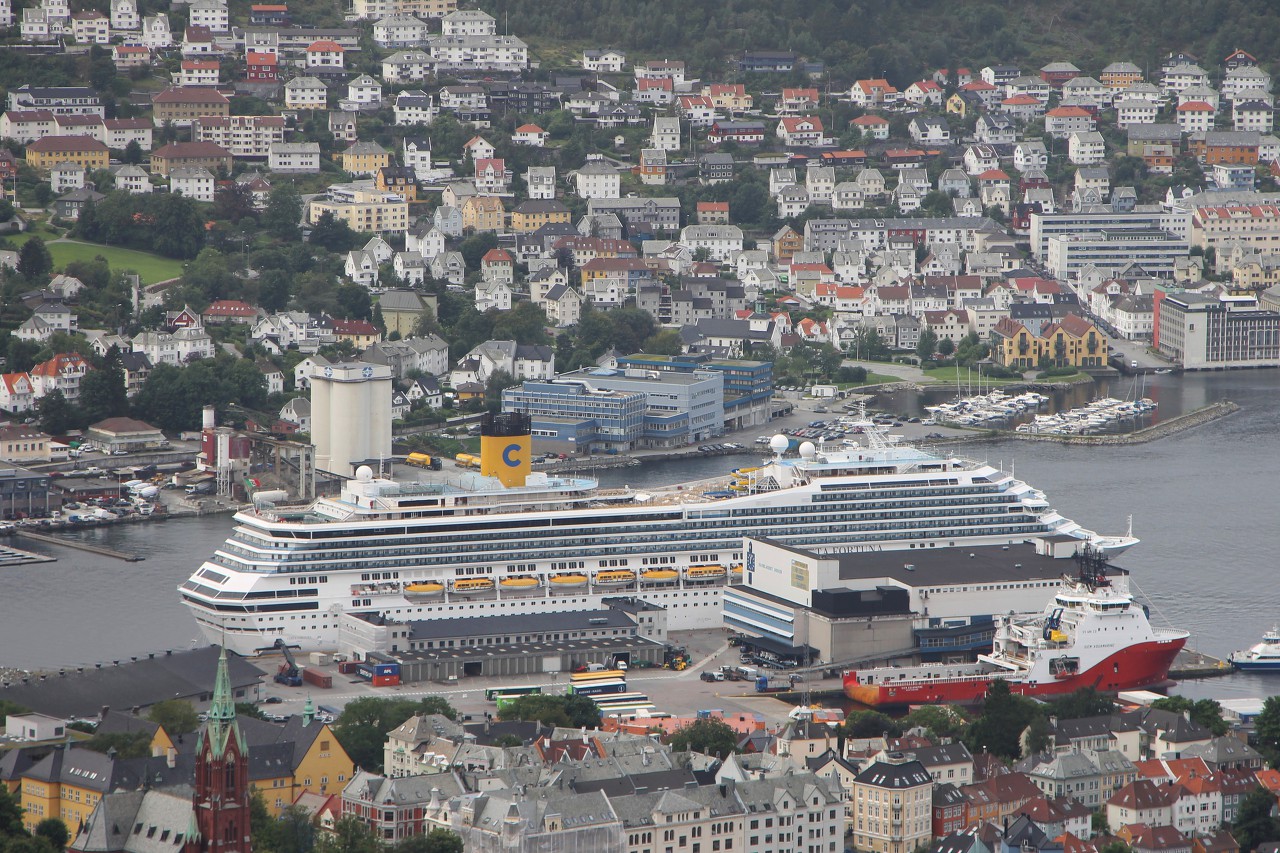
On the funicular, we went up to mount Fløyen (or Fløyfjellet), where the observation platform of the same name is located...read more 
Bergen - Steinsdalen
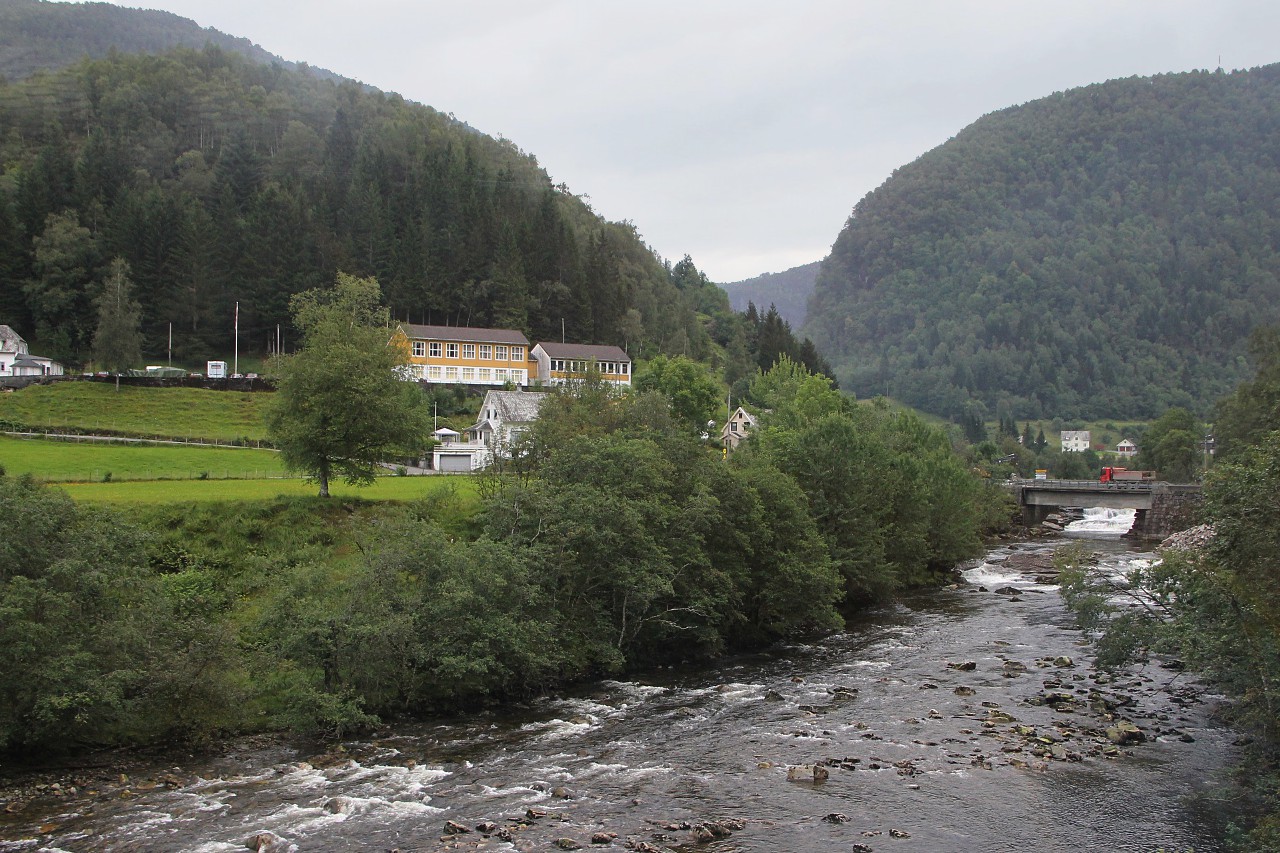
In the afternoon, we left Bergen and took the E39 highway to Åsane, then
turned off the E16, which runs along the southern shore of the
Sørfjorden. We passed the Osterøybrua bridge, which connects Bergen with
the Kvisti farming area on the island of Osterøy...read more 
Steinsdalsfossen Waterfall
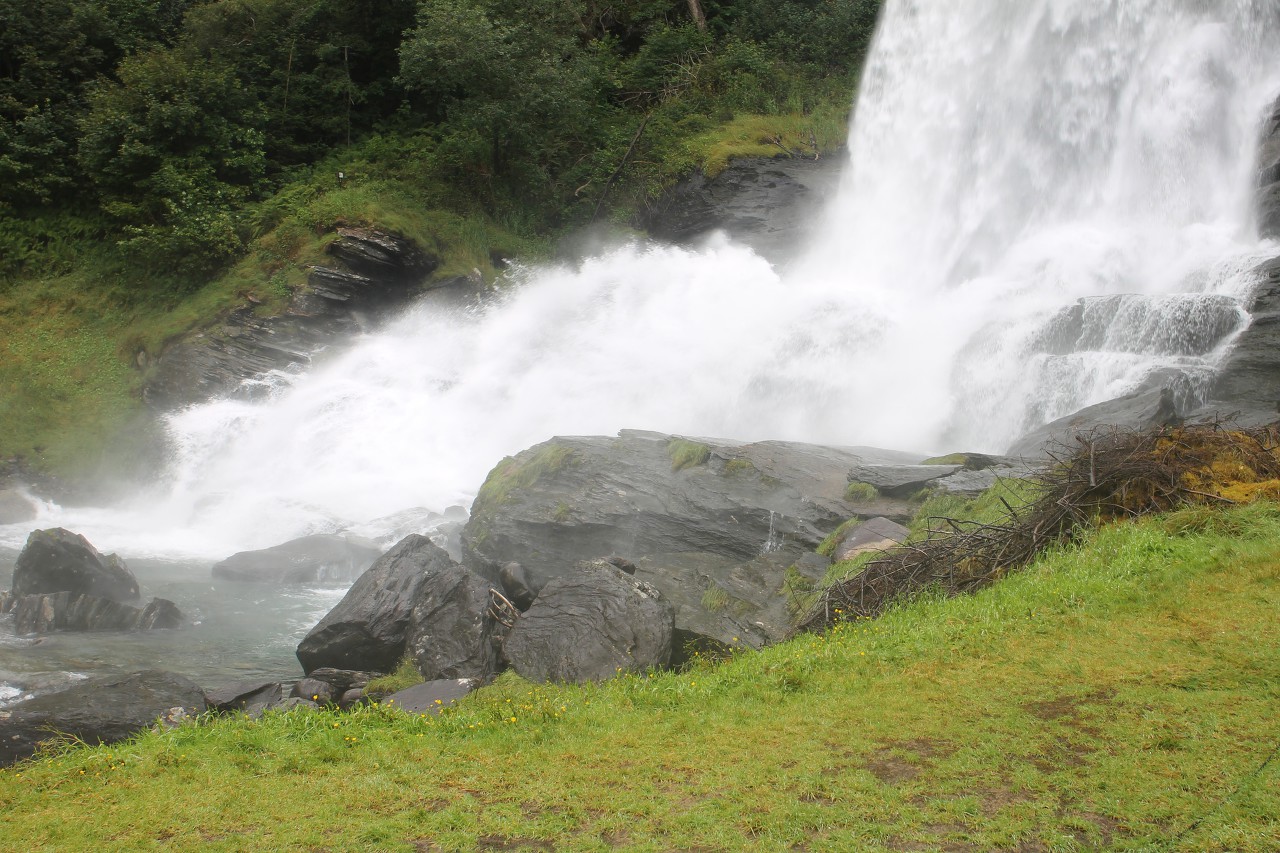
A little over an hour after leaving Bergen, we stopped in the
Steinsdalen valley, two kilometers from the town of Norheimsund, at
another natural attraction...read more 
Norheimsund
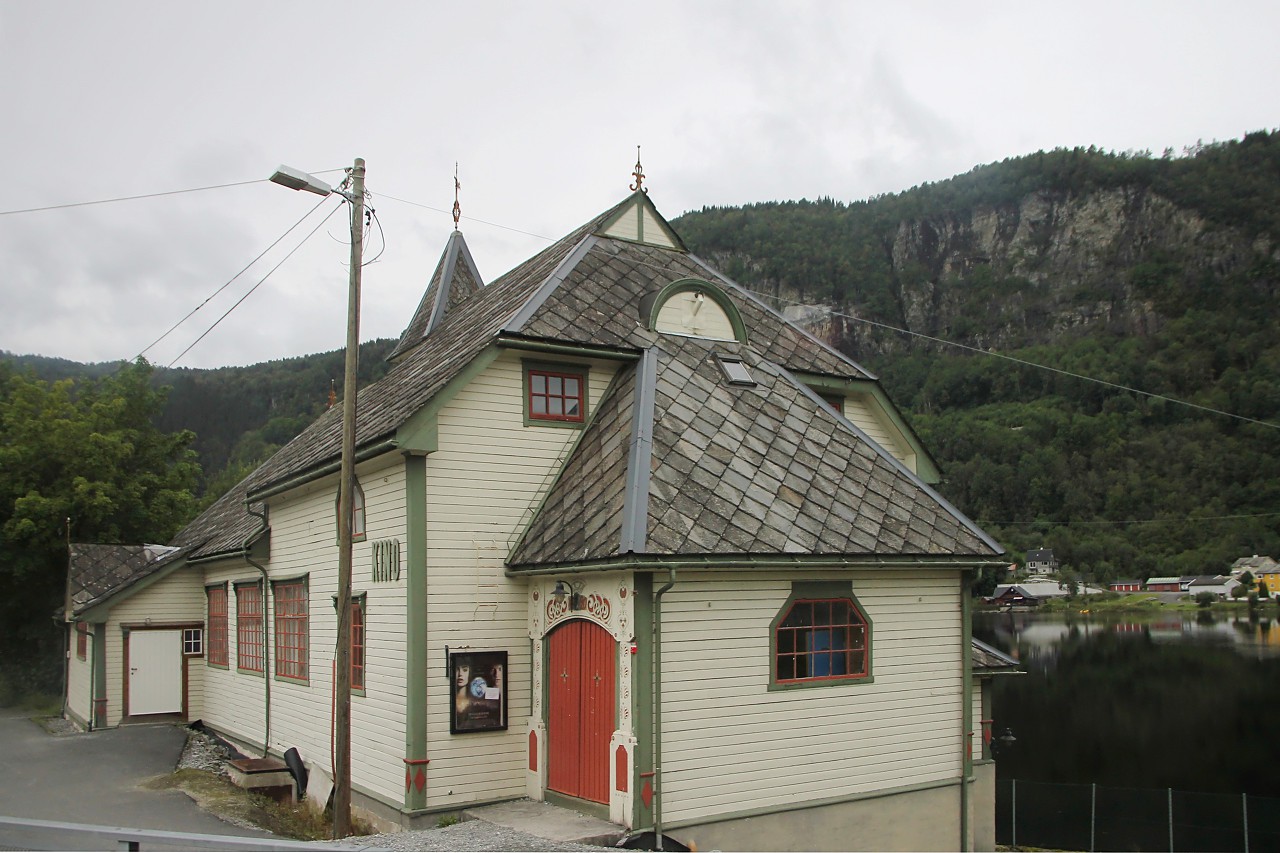
Just beyond the Steinsdalsfossen waterfall on the banks of the
Steinsdalselva river is the western edge of the town of Norheimsund...read more 
Steinstø Fruit Farm
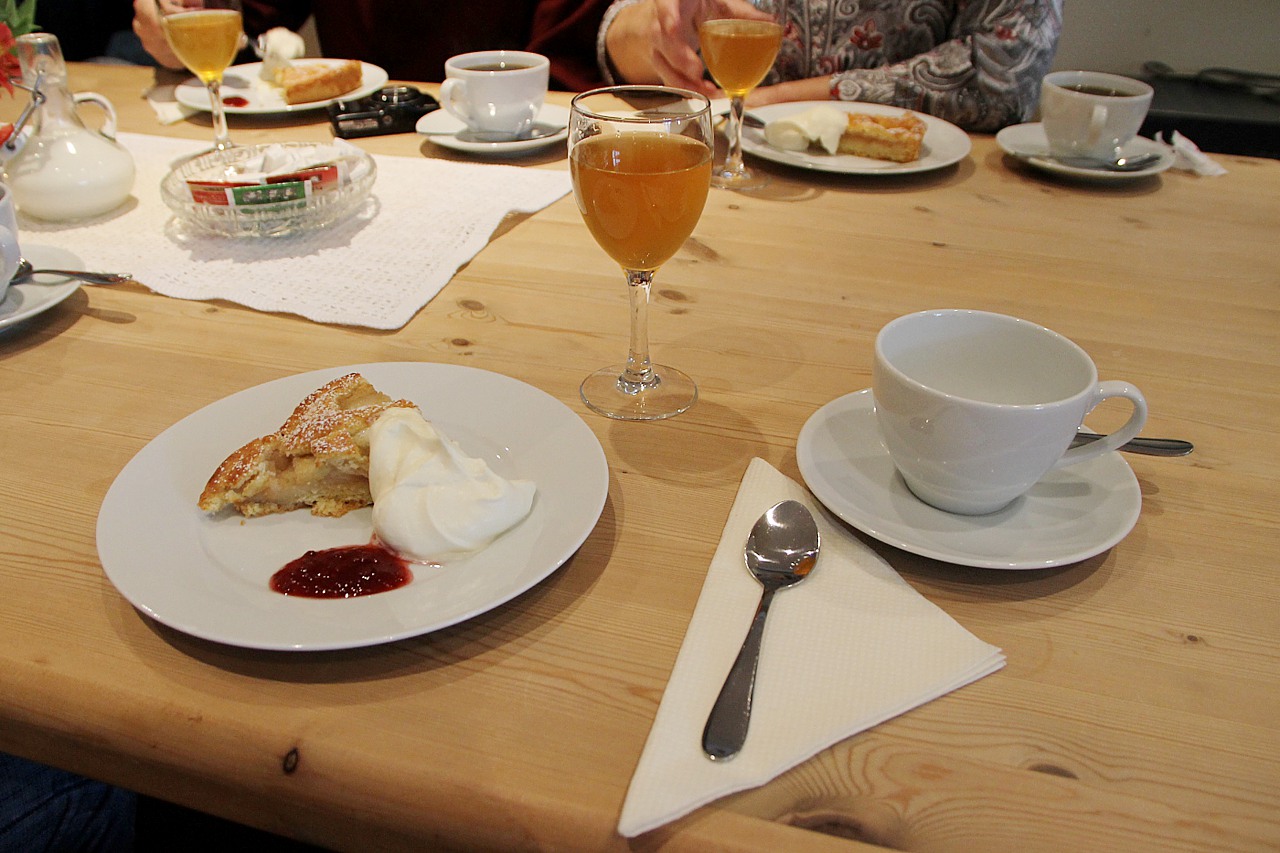
Now we will get acquainted with The Steinstø fruit farm (Steinstø Fruktgard), located in one kilometer from the bridge...read more 
Fyksesund Landscape Park, a Boat Ride
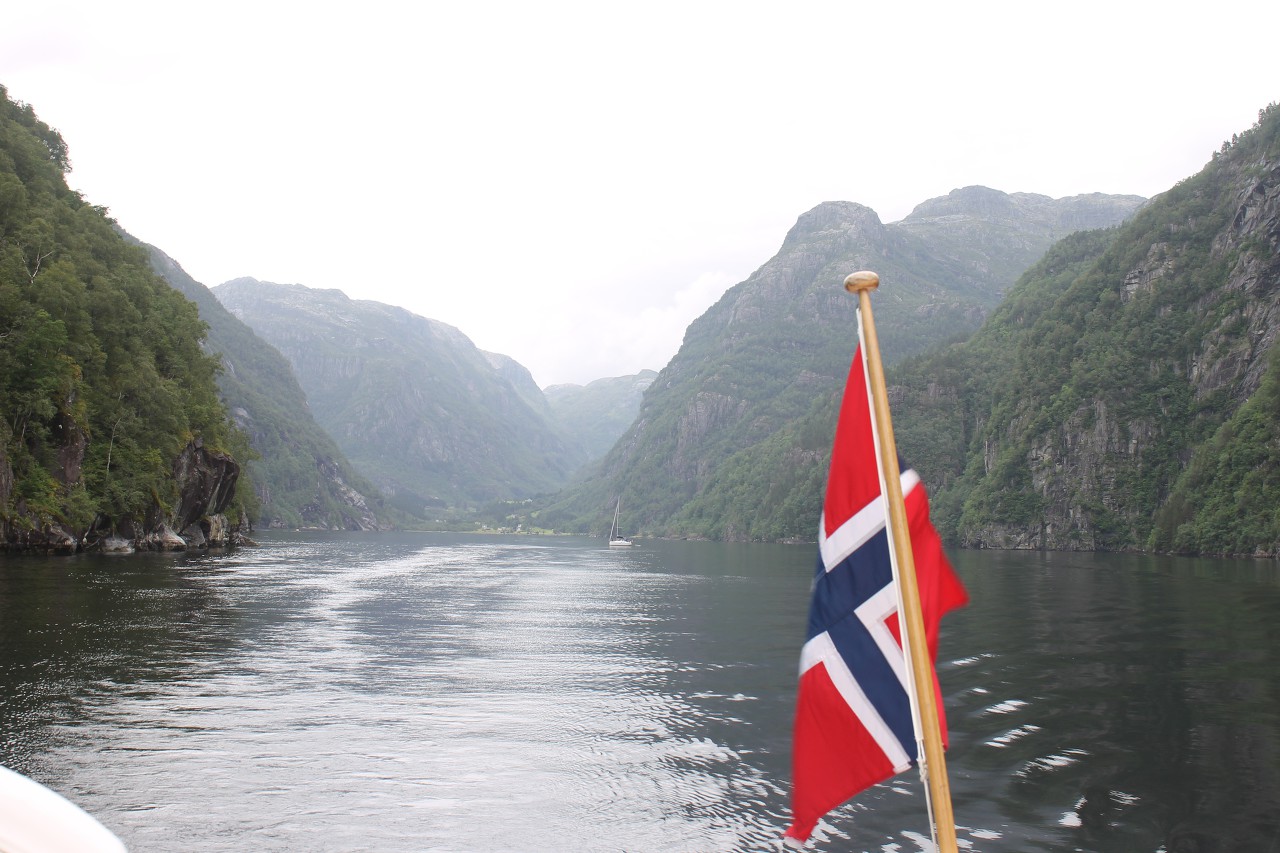
The
mountains surrounding the fjord are rich in deposits of copper ore,
which could only be exported by water in the absence of roads. Now, in
some places along the banks of the fjord, you can see the remains of
loading ramps...read more 
Fykse and Fyksesund Bridge
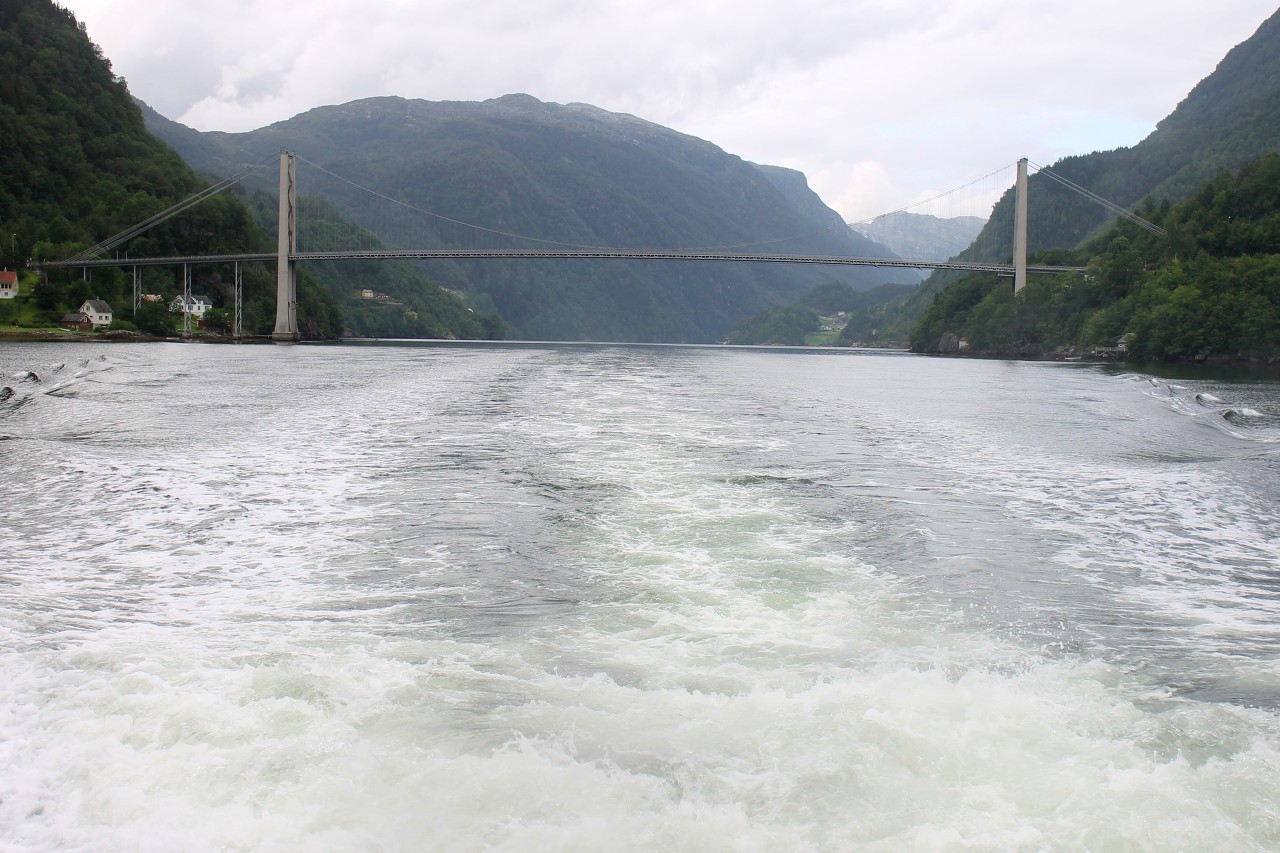
The Fyksesund, a small branch of the Hardangerfjord, takes its name from
the small farming village of Fykse, located at its mouth. In 1999, the
village received a special award from the Governor of the province of
Hordaland for the preservation of the cultural landscape...read more 
Steinstø, a Village on the Hardangerfjord
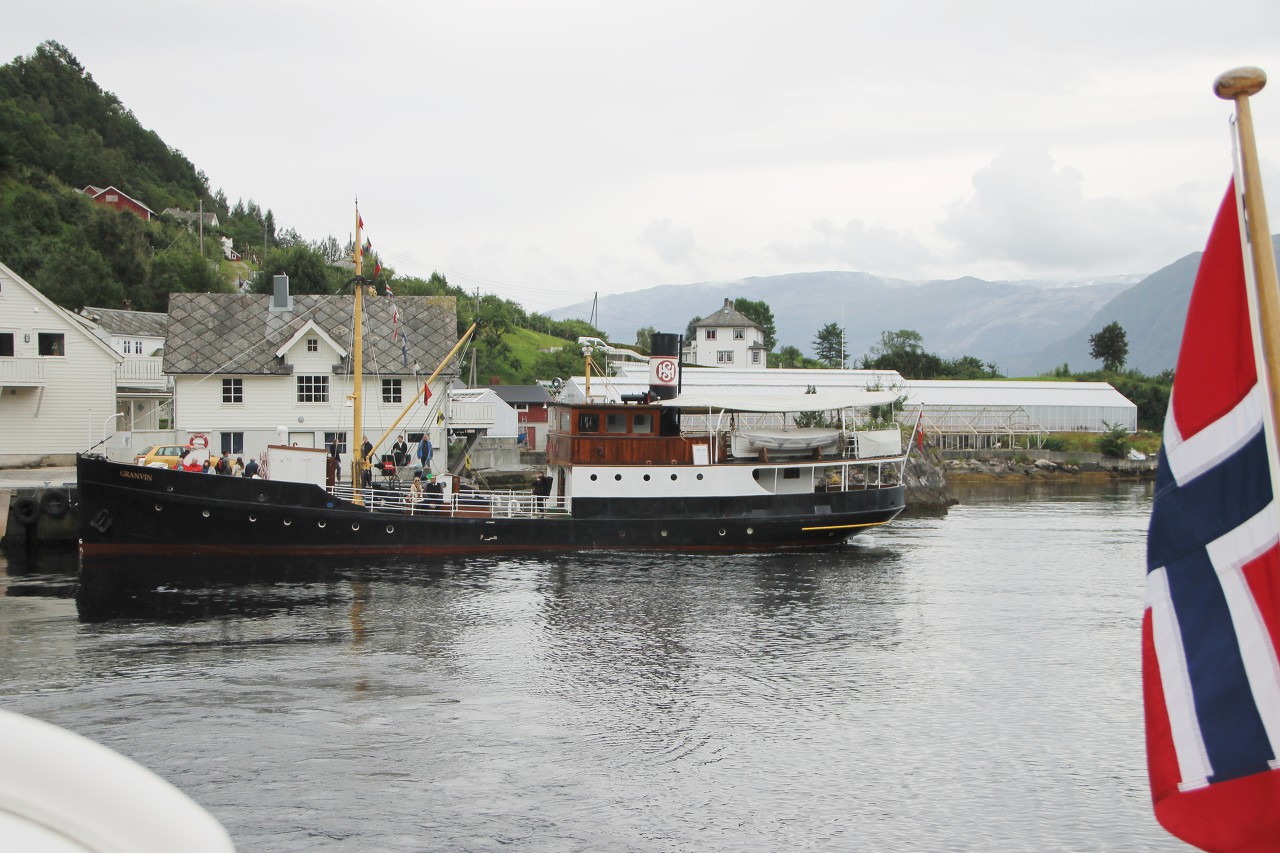
Our boat passed the Fyksesundbrua bridge and goes in the mouth of
Fyksesund, one of the most picturesque branch of the Hardangerfjord...read more 
Hardangervegen and Osvegen
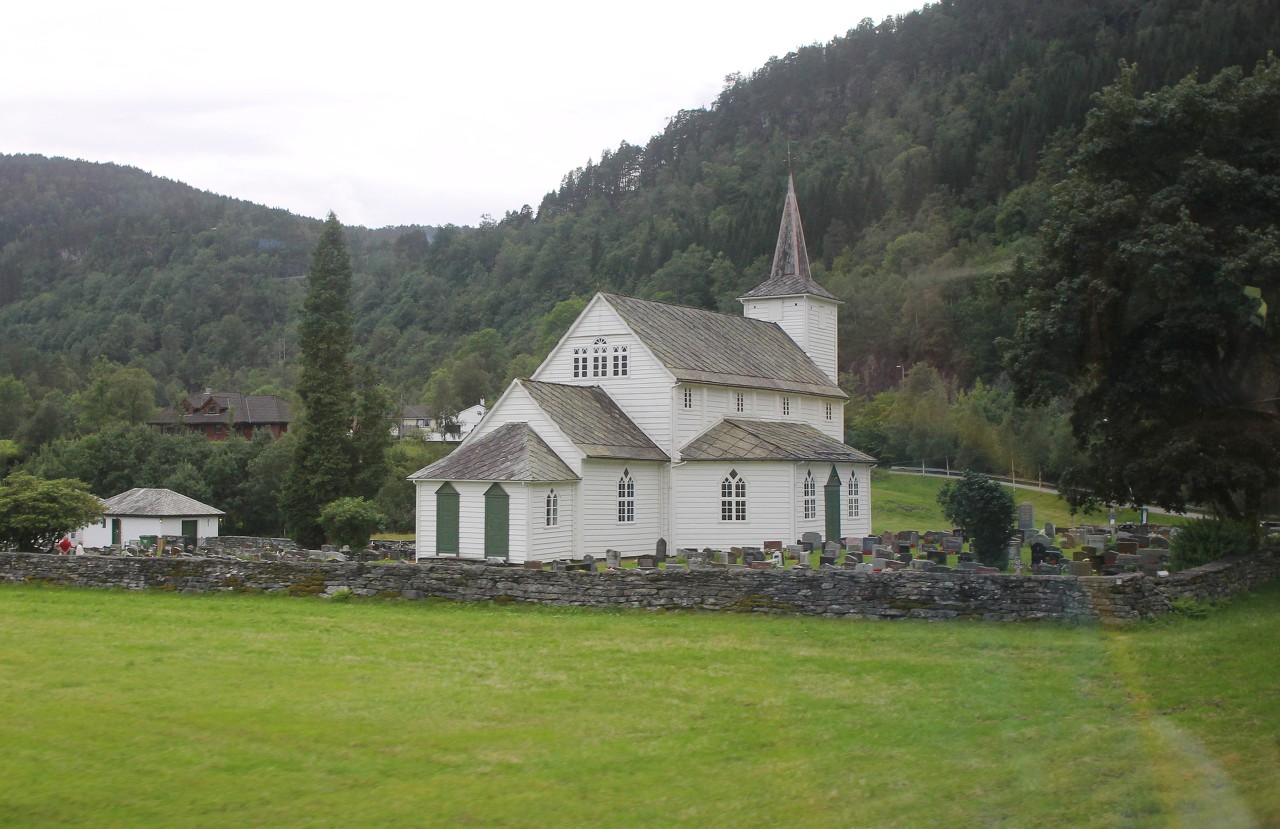
From Fixesund, we drove back along the fv7 highway to Samnanger, at the end of the Samnangerfjord...read more 
Halhjem–Sandvikvåg, Fanafjord Ferry
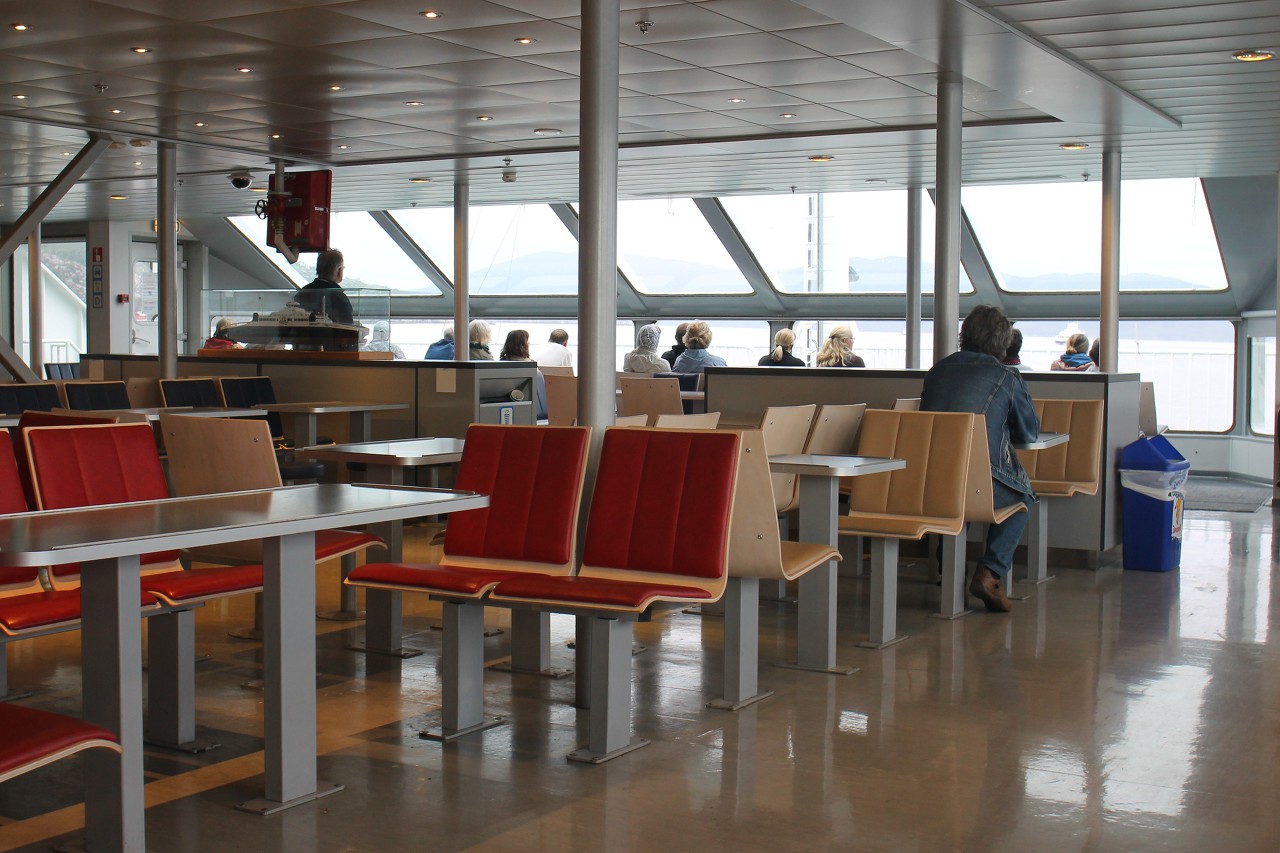
In Halhjem, the E39 highway led us to another ferry crossing. There are
two routes at once: from the left berth Halhjem-Våge, from the right
Halhjem-Sandvikvåg. We're going to Haugesund so we're going right...read more 
Night Haugesund, the Smedasundet Promenade
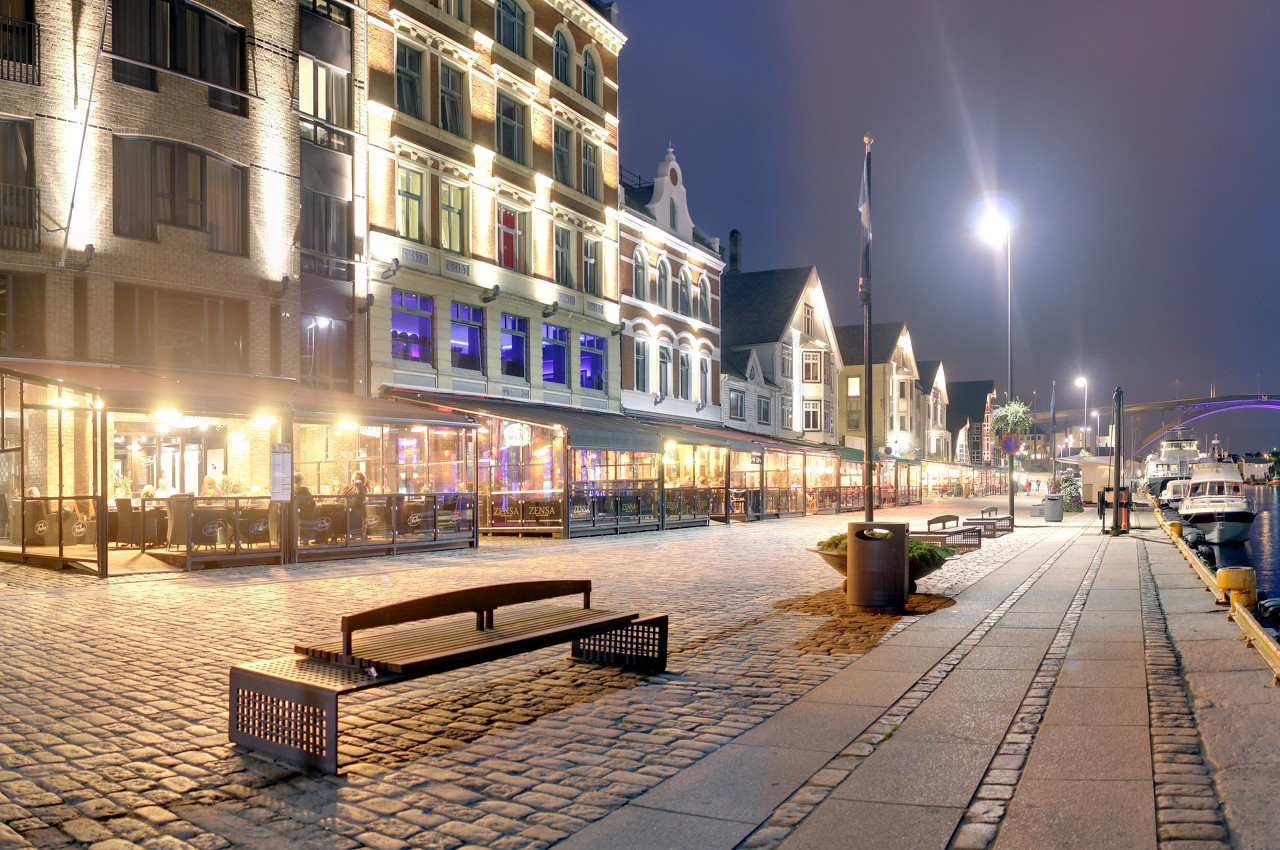
It was dark when we arrived at our place of lodging for the night, in
the town of Haugesund. This was our first night in a large settlement,
if you can call it a town with a population of 36 thousand inhabitants.
But this is a lot for Norway. After checking into the Scandic hotel and
having a quick snack, I went to a night photo shoot...read more 
Night Haugesund. Torggata Square
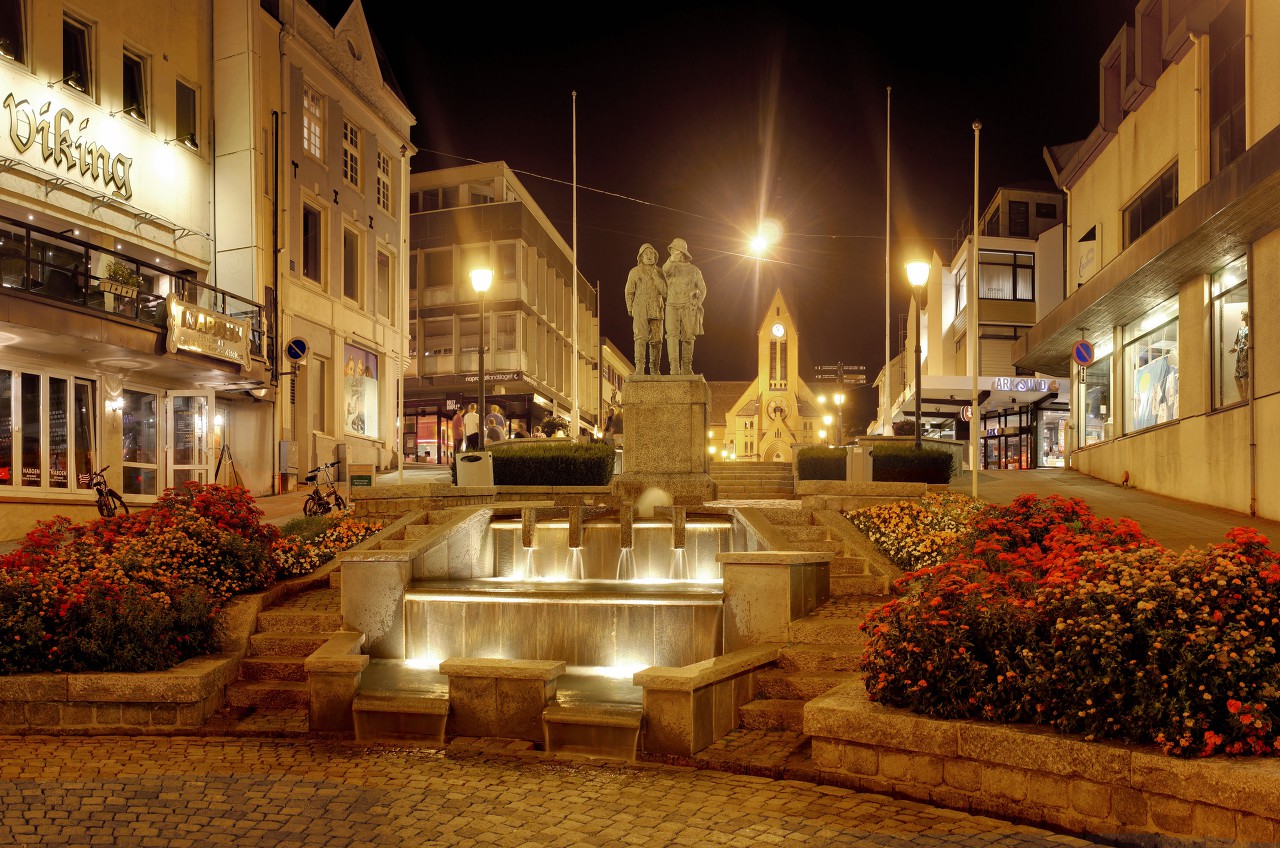
...read more 